September 10, 2025 – September 13, 2025
Baltimore, Maryland

September 10, 2025 – September 13, 2025
Baltimore, Maryland

The Environmental Justice Symposium, informally known as the EJ Symposium, was first held on Saturday, December 1, 2012, organized by Dr. Sacoby Wilson with the support of Dr. Mustafa Santiago Ali (then Associate Director of the U.S. EPA Office of Environmental Justice), Dr. Jalonne L. White-Newsome (then Director of Federal Policy at WE ACT), Dr. Vernice Miller-Travis (Co-Founder of WE ACT), and Leslie Fields (former National Environmental Justice Director for the Sierra Club).
Since its inception, the symposium has served as a critical forum for addressing environmental justice issues and actions impacting the DMV region and beyond. Over the years, participant feedback has shaped the event into a more dynamic experience, expanding beyond presentations to include workshops and hands-on training sessions that equip community members and allies with the tools to drive meaningful change.
Now in its 11th year, the Environmental Justice and Health Disparities Symposium stands as a landmark gathering of community leaders, experts, and activists committed to advancing environmental justice and addressing health disparities. Presented by CEEJH INC, now operating as a grassroots nonprofit, the 2025 symposium will be an immersive hybrid experience: virtually on Wednesday, September 10, and in person from Thursday, September 11, through Saturday, September 13, in Baltimore, Maryland.
This year’s theme underscores our collective commitment to action and healing, built on three guiding pillars: resistance against systemic inequities, resilience in confronting environmental and health challenges, and the restoration of community well-being and environmental integrity.
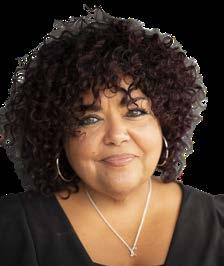
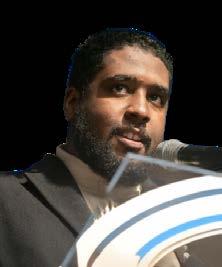
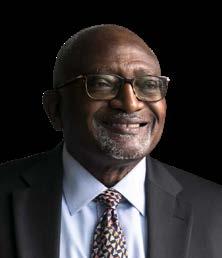
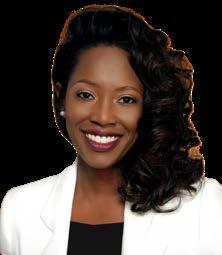

Elizabeth Yeampierre
Executive Director, UPROSE
Day 1
William J. Barber III, Esq.
Senior Director of Impact, Coalition for Green Capital
Founder and CEO, Rural Beacon Initiative
Day 2
Robert D. Bullard, PhD
Founder & Executive Director, Bullard Center for Environmental and Climate Justice, Texas Southern University
Day 3
Jalonne White-Newsome, PhD.
CEO and Founder of Empowering a Green Environment and Economy, LLC
Associate Professor, The University of Michigan School of Environment and Sustainability
Day 3
Wanjiku (Wawa) Gatheru
Founder and Executive Director, Black Girl Environmentalist and Climate Activist
Day 4
Tuesday, September 9, 2025
Pre-Symposium Sessions
7:00 AM – 6:00 PM | LOCATION: VIRTUAL ONLY
We’re excited to launch this series of free virtual conversations designed to highlight the key themes, community voices, and urgent issues that will shape this year’s symposium. These conversations were recorded during the weeks leading up to the symposium. Participants who registered for the symposium will maintain exclusive access to these recordings over the next three months. Log in to your WHOVA account to access this content.
Pre-Symposium Community Science/ Air Quality Monitoring (AQM)
7:00 AM – 8:30 AM | PRE-RECORDED (RECORDED JULY 29TH, 6:00 PM EDT)
In the face of federal rollbacks under a regressive Trump administration—such as weakened EPA enforcement, dismantled air monitoring networks, and loosened pollution standards—frontline communities are stepping up to protect themselves. This session explores how community-led air quality monitoring has become both a shield and a sword: a shield against environmental neglect and harm, and a sword in the fight for data justice, policy change, and public health. From fence-line multi-pollutant sensors near incinerators to school-based particulate matter monitors to measure children’s exposure and boost environmental literacy, residents are reclaiming their right to know what’s in their air and using that knowledge to push back.
Attendees will learn how air quality monitoring INpowers EJ communities to document violations, inform litigation, shape local ordinances, and hold polluters accountable—especially when federal protections erode. The session will spotlight tools, case studies, and strategies for building your own community monitoring network, working with scientists and advocates, and translating data into “action-oriented solutions.” Participants will walk away with not only the technical basics but also the political framing to transform invisible pollution into undeniable evidence—and make clean air a non-negotiable demand, even in hostile political times.
SPEAKER
Dr. Vivek Ravichandran, Director of Research and Policy & Air Quality Scientist, CEEJH INC
8:30 AM – 10:00 AM | PRE-RECORDED (RECORDED AUGUST 5TH, 10:00 AM)
Frontline communities have long borne the brunt of extractive energy systems, facing environmental degradation and health risks. Over the next few decades, clean energy investments will either reinforce disparities or serve as the foundation of a just transition. This module looks at unequal practices in how energy is produced and shared, using examples from the United States and around the world. It introduces key ideas from Just Transition and democratic energy planning. Participants will engage with interactive video content, real-world case studies, and frontline testimonials to understand how to champion equitable energy solutions that prioritize community well-being and sustainability. By centering the voices and leadership of affected communities, this module empowers fellows to drive a just transition towards affordable, accessible, and clean energy for all.
Jessica Berger, Operations Manager, CEEJH INC
Nam Pham, Director, Outreach and Engagement, CEEJH INC
10:00 AM – 11:00 AM | PRE-RECORDED (RECORDED AUGUST 7TH, 12:00 PM EDT)
As communities transition toward cleaner transportation systems, electric vehicle (EV) infrastructure has become a critical component of climate action and environmental justice strategies. Across the U.S., recent policies and funding commitments are accelerating the nationwide push for clean energy adoption and expanded EV access. These policies create a unique window of opportunity for small businesses, faith-based organizations, and nonprofits to enter the clean energy space as direct participants, not just beneficiaries.
This webinar will explore how franchising EV charging stations can serve as a practical and profitable business strategy to diversify revenue streams, build community wealth, and strengthen local resilience. The session will address the technical and policy considerations involved in installing EV infrastructure, including site selection, permitting, and maintenance, while also outlining how franchise partners can receive structured support to navigate these challenges.
Through real-world case studies from the Mid-Atlantic region, especially faith-based and community-led projects, attendees will learn how EV infrastructure can act as a catalyst for broader clean energy transitions and economic empowerment.
Participants will leave with a clear understanding of how climate and EV policies align with franchising models that prioritize equity, entrepreneurship, and long-term sustainability. This session is ideal for community leaders, nonprofit executives, administrators, city planners, and environmental justice advocates ready to advance transportation equity while tapping into new clean energy business opportunities.
SPEAKERS
Dr. Masica Jordan Alston, CEO, Inclusive Clean Energy for Those Underserved
Stephanie Strianse, COO, Apexx Adams Transportation
Pre-Symposium The Womb is Our First Environment: Reproductive Justice, Birth Justice, and the EJ Movement
11:00 AM – 12:30 PM | PRE-RECORDED (RECORDED AUGUST 7TH, 6:00 PM EDT)
This powerful live webcast explores the critical intersections of birth, reproductive, and environmental justice, with a focus on Black maternal health. Beginning with a presentation unpacking how environmental racism and the climate crisis intensify the Black maternal health crisis, Vanessa A. A. Vassall will set the stage for a dynamic conversation with full-spectrum Doula and lactation consultant Sierra Leone Dillard, who will share how she empowers families with emergency preparedness tools, environmental wellness resources, and safety guidance tailored to pregnancy, postpartum care, and health equity. The discussion will also feature perinatal mental health expert and student midwife Barbara Verneus, offering insight into coping strategies and behavioral shifts that help Black birthing people and families manage toxic stress and climate-induced anxiety.
CEEJH is excited to also spotlight filmmaker, journalist, and ancestral storyteller Dr. Reniqua Allen-Lamphere and her forthcoming documentary “Infertile Grounds,” an urgent and deeply personal investigation into how environmental harm endangers Black pregnancies and births. Centering community voice and RESToration, this session invites attendees to engage with both the challenges and solutions shaping Black reproductive futures.
Vanessa Vassall, Outreach and Engagement Specialist, CEEJH INC
Sierra Leone Dillard, Certified Full Spectrum Doula
Dr. Reniqua Allen-Lamphere, Journalist, author, and filmmaker
Barbara Verneus, Birth Assistant, Doula Lactation, Feeding Specialist & Midwife
12:30 PM – 1:30 PM | PRE-RECORDED (RECORDED AUGUST 12TH AT 11:00 AM EDT)
Concentrated Animal Feeding Operations, or CAFOs emerged with the rise in industrial agriculture and urban areas. They have replaced the small, local, and family farms that once provided food for communities. CAFOs are often located in low-income, rural communities, disproportionately affecting communities of color and marginalized populations. These communities often lack the political power to influence zoning, permitting, and other environmental policy decisions. Therefore, these communities must endure contaminated groundwater supplies, toxic air pollution, particulate matter, and degraded land. Unfortunately, the pollution produced by them spreads to other areas. In this session, we will explore how CAFOs and industrial farming have affected communities and some solutions to mitigate the environmental harms caused by them.
SPEAKERS
Tamara Dickerson, Community Engagement & Outreach Specialist, CEEJH INC
Nicole Jackson, Director of Education, CEEJH INC
1:30 PM – 2:30 PM | PRE-RECORDED (RECORDED AUGUST 21ST, 2:00 PM EDT)
As the impacts of climate change intensify, governments at all levels face growing pressure to develop effective strategies for adaptation and resilience. One approach that has gained significant traction in recent years, particularly among major international development organizations such as the World Bank, the World Economic Forum, the UNFCCC, and UNCBD, is Nature-Based Solutions (NBS). Now, NBS has rapidly entered mainstream policy and funding agendas. Yet despite its popularity, the concept of NBS remains complex, contested, and often vaguely defined. Its development and implementation raise important questions about equity, justice, effectiveness, and power. This pre-symposium session offers a critical introduction to nature- based solutions: where the concept originated, how it is framed, who defines it, and who stands to benefit from it. Participants will explore the narratives that shape NBS, interrogate its underlying assumptions, and examine the socio-political contexts in which it operates. The goal of the session is to encourage thoughtful, informed engagement with NBS, ensuring that frontline communities are protected and that climate action does not create more harm than good.
SPEAKER
Nam Pham, Director, Outreach and Engagement,
CEEJH INC
2:30 PM – 3:30 PM | PRE-RECORDED (RECORDED AUGUST 26TH, 10:00 AM EDT)
This session will preview upcoming peer-reviewed research from Climate Central and the University of California, Los Angeles and Berkeley that finds hazardous facilities across the U.S. are projected to face flood risks due to sea-level rise — with historically marginalized communities disproportionately in harm’s way. Pollution from toxic facilities and flooding independently cause inequitable health impacts — together, they present the compounded risk of toxic floodwaters. A presentation of the findings and methods of the study will be followed by a demonstration of online interactive maps that allow users to explore the risks in their communities at a granular level. Finally, we will discuss the implications and possible applications of this research and take questions from the audience.
SPEAKERS
Dr. Lara Cushing, Associate Professor, Environmental Health Sciences, Jonathan and Karin Fielding Presidential Chair in Health Equity, UCLA
Kelly Van Baalen, Project Manager, Climate Central, Inc.
Dr. Rachel Morello-Frosch, Professor, Department of Environmental Science, Policy and Management, UC Berkeley
3:30 PM – 4:45 PM | PRE-RECORDED (RECORDED AUGUST 29TH, 10:00 AM EDT)
Church, Soil, & Food Sovereignty examines how communities move from food apartheid, the historical pattern of segregation, redlining, land dispossession, and disinvestment that shaped who gets healthy food, to durable solutions that center justice and local control. This session shows why responses must go beyond emergency food distribution: first toward food justice (addressing the policies and power imbalances that create inequity) and then toward food sovereignty (community control of land, production, and distribution). Partnerships are essential to that shift, especially faith institutions like the Black church, which bring land, kitchens, trusted relationships, organizing experience, and moral authority to mobilize resources, convene stakeholders, and partner with Black farmers, nonprofits, and local governments. In a focused, practical talk, Nicole Jackson (Principal EJ Advisor, Monarch PSG; Director of Education, CEEJH INC) will define these terms, show how congregations can mobilize church assets, and offer a concise starter checklist your congregation can act on in the next 90 days.
Then Reverend Dr. Heber Brown III — pastor-turned-farmer and founder of the Black Church Food Security Network — will share an AME case study and hard-won lessons from the field. Over the last six years, more than 170 churches have joined his mission; BCFSN now supports hundreds of member congregations and a growing directory of Black farmers. Rev. Brown’s story— of noticing health and food struggles in his pews, planting a garden that transformed lives, and scaling that work into a national movement — is both a call to action and a blueprint: faith communities have the relationships, heritage, and moral authority to help nourish mind, body, and soul and to co-create a more just, community-led food system.
This session is ideal for pastors, ministry teams, urban farmers, organizers, and anyone ready to turn faith into food-power.
Nicole Jackson, Director of Education, CEEJH INC
Rev. Dr. Heber Brown, Founder & Executive Director, Black Church Food Security Network
Rev. Brenda White, Pastor, Allen AME Church (Baltimore, MD)
Special Session Katrina’s Legacy and Trump’s Environmental Rollbacks: An Intimate Chat with Dr. Beverly Wright
4:45 PM – 5:45 PM | LOCATION: VIRTUAL ONLY | PRE-RECORDED (RECORDED, WEDNESDAY, SEPTEMBER 3RD, 11:00 AM EDT)
As we mark the 20th anniversary of Hurricane Katrina, we reflect on the storm’s devastation and its unfulfilled promise of justice. Katrina exposed long-standing racial and economic disparities in disaster relief and recovery – the hardest hit were overwhelmingly low-income Black communities in New Orleans and the Gulf Coast. Today, many of those same neighborhoods still struggle with climate displacement, polluted environments, and a lack of investment, even as intensifying storms loom.
In this virtual fireside chat, Dr. Beverly Wright, a New Orleans sociology professor and founder of the Deep South Center for Environmental Justice (and a Katrina survivor herself), will explore how those historic challenges are amplified by recent policy changes. She will connect Katrina’s legacy to Trump-era rollbacks: rescinding Clinton’s environmental justice order, disbanding EPA EJ offices, furloughing hundreds of EJ staff, and cutting off grants for pollution cleanup and resilience. As Dr. Wright notes, terminating these justice and climate programs “leaves communities vulnerable and families unhealthy”. Together, we will ask what it means for Katrina survivors if the federal government retreats from equity, and how grassroots advocates can hold leaders accountable. This critical conversation will probe how to ensure that recovery and rebuilding efforts prioritize the needs and rights of frontline communities, so that Katrina’s lessons are finally heeded.
SPEAKER
Dr. Beverly Wright, Founder & Executive Director, Deep South Center for Environmental Justice
6:00 PM – 7:30 PM | LOCATION: VIRTUAL ONLY | PRE-RECORDED
(RECORDED SEPTEMBER 9TH, 6:00 PM EDT)
Federal civil rights laws give effect to the Constitution’s guarantee of equal protection of the law. Yet, despite the pressing need to address racial inequality in this country, the Trump Administration is taking aim at civil rights laws and efforts to advance environmental justice. This session will highlight strategies for affirming our national commitment to enforcing civil rights in this time of federal retreat and retrenchment. Discussion will touch on short and long-term legal, legislative, and communications strategies at local, state, and federal levels.
MODERATOR
Vernice Miller-Travis, Executive Vice President, Metropolitan Group
SPEAKERS
Andrea Joy Campbell, Attorney General, Commonwealth of Massachusetts
Abre’ Conner, Esq., Director, Environmental and Climate Justice, NAACP
Debbie Chizewer, Managing Attorney, Midwest Regional Office, Earthjustice
Sofia Owen, Director, Environmental Justice Legal Services & Senior Attorney, Alternatives for Community & Environment (ACE)
Marianne Engelman-Lado, Director of the Environmental Justice Laboratory, NYU School of Law
Wednesday, September 10, 2025
Opening Keynote Elizabeth Yeampierre
8:30 AM – 9:05 AM | LOCATION: VIRTUAL ONLY
SPEAKER
Elizabeth Yeampierre, Executive Director, UPROSE
9:15 AM – 10:05 AM | LOCATION: VIRTUAL ONLY
As data centers proliferate to power artificial intelligence (AI), their massive energy demands and reliance on fossil-fuel grids compound the pollution burdens facing frontline neighborhoods, adding heat, emissions, and strain on already overtaxed infrastructure. This session examines how cumulative impacts from data centers, alongside legacy environmental stressors, magnify health risks in low-income and communities of color. We will explore how AI and big-data tools can both illuminate these intersecting harms, through predictive modeling of pollution hotspots and real-time monitoring, and risk reinforcing biases if local voices and data governance are excluded.
Panelists will share strategies for community-led data ownership, trust-based partnerships with researchers, and policy frameworks that require cumulative impact analyses in permitting processes. Attendees will leave with actionable approaches to leverage AI responsibly, challenge unchecked data-center expansion, and ensure that technological progress advances environmental justice rather than undermines it.
MODERATOR
Khalil Shahyd, Senior Strategist, Green Finance & Economic Development Center, NRDC
SPEAKERS
Monica Unseld, Founder and Executive Director, Until Justice Data Partners
Julie Bolthouse, Director of Land Use, Piedmont Environmental Council
9:15 AM – 10:05 AM | LOCATION: VIRTUAL ONLY
This panel explores how communities across the Americas and beyond are reclaiming identity, health, and territory through food sovereignty initiatives. In contexts marked by displacement, environmental injustice, and structural racism, food sovereignty becomes not only a survival strategy but also a means of cultural regeneration and political resistance.
Panelists will share grounded experiences and transnational strategies that link food justice, land access, and the restitution of rights for migrant, Indigenous, Afro-descendant, and racialized communities. We will also examine how the synergy between citizen science and traditional knowledge is already strengthening these efforts, helping to restore connections to land and food systems in community-centered ways.
We aim to foster dialogue on how reclaiming land and traditional food systems can support identity restoration, ecological regeneration, and long-term community resilience—while also contributing to transnational solidarity movements and reparative justice frameworks.
MODERATOR
Alma Segoviano, International Senior Legal Advisor, Founder, KALEJ – KHaRMAlma
SPEAKERS
Bonnetta Adeeb, Founding Member, UJAMAA Seeds (United States)
Dr. Jeff Baker, Canadian Resilience Institute (Canada)
Naolo Charles, Founder, Black Environmental Initiative (Canada / Côte d’Ivoire)
Héctor Anguiano, Representative, Comunidad Indígena de Nuevo San Juan Parangaricutiro, a Purépecha community in Michoacán Mexico (Mexico)
9:15 AM – 10:05 AM | LOCATION: VIRTUAL ONLY
Beginning in January 2025, several environmental justice (EJ) programs have been paused or rescinded due to shifts in federal policy, notably under the current administration’s directives. This session aims to reflect on the significant achievements of these programs prior to their suspension, emphasizing the positive impacts they had on marginalized and underserved communities. By examining these successes, we can underscore the importance of such initiatives and discuss strategies to advocate for their reinstatement or continuation at local and state levels.
In this session, we will highlight hyperlocal air quality monitoring programs that successfully measured and reduced pollution in vulnerable communities, leading to measurable health benefits. We will also showcase initiatives that provided green jobs and economic opportunities in disadvantaged areas, as well as the utilization of tools like EPA EJScreen prior to their shutdown, which identified areas with high pollution levels and socio-economic vulnerabilities, aiding in targeted interventions.
SPEAKER & MODERATOR
Rachel Patterson, Senior Policy Director, Evergreen
SPEAKERS
Jillian Blanchard, Vice President, Climate Change & Environmental Program, Justice Lawyers for Good Government (L4GG)
Michelle Roos, Executive Director, Environmental Protection Network
Dr. Matthew Tejada, SVP Environmental Health, NRDC
9:15 AM – 10:05 AM |
Historically Black Colleges and Universities (HBCUs) have long stood as pillars of advocacy, resilience, and justice, deeply intertwined with the environmental justice (EJ) movement both in the United States and globally. Across the nation, HBCUs have mobilized their faculty, staff, and students to shape, lead, and advance EJ agendas that confront the intersecting crises of environmental degradation, racial injustice, and economic exclusion. The climate change phenomenon is exacerbating the negative effects of environmental threats to millions of EJ stakeholders including, but not limited to - rising sea levels, extreme weather, energy disruptions, and toxic exposures.
HBCUs house the capacity and expertise to provide multi-disciplinary technical assistance to frontline communities including built environment development, geospatial technology applications, health impact assessments, economic and fiscal planning, earth systems science analyses, grant writing guidance, etc. Documenting and elevating this work at a national scale can unlock powerful pathways for collaboration, innovation, and climate adaptation, particularly for Black, Brown, and Indigenous populations disproportionately burdened by environmental harm.
This session shares the experiences of HBCU faculty members and researchers who have been working on the ground with EJ communities via the HBCU Environmental Justice Technical Collaborative (HEJTC), the Southeast Environmental Justice (SEEJ) Network, the HBCU Community Based Organization (CBO) Gulf Equity Consortium, and others.
This esteemed panel will demonstrate HBCUs are supporting grassroots stakeholders at the frontlines of today’s most pressing environmental crises. Through institutional inventories and community-based collaborations, HBCUs are building scalable models for resilience and equity that extend well beyond campus boundaries. Participants will explore lessons and opportunities for partnership, policy influence, and movement-building from this vital network of higher education institutions.
SPEAKER & MODERATOR
Dr. David Padgett, Lead and Co-Founder, HBCU Environmental Justice Technical Collaborative
SPEAKERS
Dr. Tony Graham, Assoc. AIA, Infrastructure and Built Environment Consultant, HEJTC
Kibri Everett, Principal, Key Environmental Consulting
Dr. Victoria Franklin, Genomic Epidemiology Fellow, ORISE
9:15 AM – 10:05 AM | LOCATION: VIRTUAL ONLY
Este interesante debate y sesión interactiva, abordarán en los retos que experimentan los latinos en nuestra región y presentar los esfuerzos de promoción a través de conocimientos basados en datos,al igual que el esfuerzo colectivo. Este taller abordará en estos y otros desafíos que se esperan en los próximos años reuniendo expertos en los sectores del medio ambiente, intituciones académicas, y comunitarias, organizaciones sin fines de lucro y las agencias locales que nos ayudarán a entablar un diálogo y fomentar ideas para superar las desigualdades ambientales que enfrenta la comunidad latina. Nuestro objetivo es identificar soluciones ambientales que se basarán en el importante trabajo que los líderes comunitarios en el tema de la justicia ambiental realizan, y resaltar los impactos desproporcionados en las comunidades latinas enfrentan y así ayudar a garantizar que nuestras prioridades estén incluidas, elevadas y protegidas.
This engaging session and interactive discussions will address the disparities experienced by Latino individuals in the region and empower advocacy efforts through data-driven insights, propelling collective action. This session will tackle these and other challenges in the upcoming years by bringing together the environmental sectors, academia, community, nonprofit, and local agencies to engage in dialogue and foster ideas to overcome the environmental inequities encountered by the Latino community. Our goal is to identify environmental solutions that will build upon the significant work of frontline environmental justice leaders to highlight disproportionate impacts on the Latino communities and help ensure our priorities are included, elevated, and protected.
MODERATOR
Ramón Palencia-Calvo, Maryland LCV | Chispa Maryland
SPEAKERS
Gabriela Lemus, Founding Executive Director, Maryland Latinos Unidos
Albert Arevalo, Environmental Data & Best Practices Coordinator, Prince George’s Park and Recreation
Walkiria Pool, Founder, Centro de Apoyo Familiar (CAF)
10:15 AM – 11:05 AM | LOCATION: VIRTUAL ONLY
Climate-driven disasters are accelerating in frequency, intensity, and cost—placing a disproportionate burden on low-income, historically marginalized communities and pushing health and emergency systems beyond their limits. In the past five years alone, major U.S. weather events have claimed more than 2,000 lives and inflicted an average of $121 billion in annual damages. Rising sea levels, extreme heat, and intensified storms are disrupting essential services and threatening lives. In 2024—the hottest year on record—every month from May 2023
to summer 2024 broke global temperature records. These extremes are not abstract—they are triggering cascading health, housing, and financial crises, especially for the most vulnerable.
Extreme heat is overwhelming public infrastructure and exposing systemic weaknesses in our health systems. It is linked to a wide range of health risks: cardiovascular disease, respiratory illness, kidney failure, premature births, cognitive decline, and mental health emergencies. Communities of color, low-income families, outdoor workers, older adults, children, and people with preexisting conditions face the highest exposure and the fewest protections. Flooding brings additional threats, from respiratory illness to long-term psychological trauma, which remerges with each storm, emphasizing the need for more targeted and trusted early warning systems—often unrecognized and untreated. Meanwhile, our health systems are not equipped to manage the growing complexity and volume of climate-related health needs.
To respond to this crisis, the Environmental Collaboratory (TEC) at Drexel University convened a cross-sector regional forum focused on community-level preparedness and recovery. Participants included local and state government agencies, environmental justice and community organizations, residents, hospital and public health systems, and national NGOs. This session will highlight the critical gaps in emergency preparedness and priorities for strengthening community resilience through cross-sector collaboration, policy reform, and resource alignment.
Mathy V. Stanislaus, Esq, Vice Provost & Executive Director, The Environmental Collaboratory, Drexel University – Office of the Provost
10:15 AM – 11:05 AM | LOCATION: VIRTUAL ONLY
This session examines how historic and ongoing environmental harms shape frontline communities across three nations, Mexico, Canada, and the United Kingdom, and how grassroots actors are reclaiming justice. From the industrial corridors of Mexicali and Ciudad Juárez to the tar-sand-impacted lands of Alberta and the neglected green spaces of England, panelists will illuminate the intersections of policy, power, and resistance.
In Mexico, binational coalitions along the U.S.–Mexico border are confronting decades of air and water pollution, while Indigenous and Afro-Mexican women lead efforts to secure legal personhood for sacred cenotes and revive ancestral farming in Oaxaca and Sinaloa. In Canada, First Nations advocates are demanding enforcement of water-quality standards in reserve communities long plagued by boil-water advisories, and resisting pipeline expansions that threaten treaty lands and traditional livelihoods. Across the Atlantic, the U.K.’s “Nature Towns and Cities” initiative is restoring urban green space with a £1 billion investment, and new water-industry reforms are strengthening environmental protections after high-profile pollution incidents.
Through cross-national dialogue, panelists will share transferable strategies, such as community-led mapping, participatory planning, and treaty-based advocacy, to strengthen environmental justice movements from the Mid-Atlantic to the global stage. Attendees will leave with actionable insights for forging international solidarity in service of resistance, resilience, and RESToration.
James Page, Chief Global Diversity Equity & Inclusion Officer, The Nature Conservancy
SPEAKERS
Alma Segoviano, International Senior Legal Advisor; Founder, KALEJ – KHaRMAlma
Mariam Mauzi, Educator & Advocate, UOSE, Canada
Sabrina Shadie, CEEJH Climate Justice Fellow, D’Rose Development, UK
10:15 AM – 11:05 AM | LOCATION: VIRTUAL ONLY
This session will spotlight the transformative work of Green The Church, a national initiative that mobilizes Black churches and faith leaders to lead on climate action and environmental justice. Founded by Rev. Dr. Ambrose Carroll, Green The Church builds on the power, influence, and moral authority of the Black church to advance environmental and climate solutions rooted in equity, faith, and community well-being. Through spiritual grounding and environmental stewardship, the initiative connects congregations to energy efficiency programs, resilience planning, and advocacy that centers frontline communities.
Attendees will explore how faith-based institutions play a vital role in shaping environmental consciousness, mobilizing community power, and bridging policy with grassroots action. The session will highlight successful campaigns and partnerships, including church-based solar initiatives, climate justice sermons, and organizing efforts that uplift health, housing, and economic equity. Participants will leave with actionable strategies for integrating environmental justice into faith communities and forging cross-sector alliances that honor both spiritual and ecological commitments.
SPEAKER & MODERATOR
Rev. Dr. Ambrose F. Carroll Sr., Founder/CEO, Green The Church International
SPEAKERS
Dr. Anthony Kinslow, Founder and CEO, Gemini Energy Solutions
Rev. Juan Guthrie, Senior Pastor, Faith Presbyterian Church, Washington, DC
10:15 AM – 11:05 AM | LOCATION: VIRTUAL ONLY
In a world shaped by Volatility, Uncertainty, Complexity, and Ambiguity (VUCA), immigrant communities—especially those from Latin America and the Caribbean—are on the frontlines of overlapping environmental and social crises. This interactive online workshop will explore how climate-driven displacement, environmental health disparities, and aggressive immigration enforcement are deeply intertwined. Together, they will unpack how policies like increased ICE activity and detention infrastructure create not only social trauma, but also environmental harm, particularly in under-resourced neighborhoods already burdened by pollution and disinvestment. These issues are especially urgent in regions where Latino and immigrant communities are growing rapidly, yet face persistent inequities in housing, healthcare, and environmental protections. Learn how local leaders and national advocates are responding to these complex dynamics—and what tools and partnerships are needed to promote equity, resilience, and justice for all.
SPEAKER & MODERATOR
Gabriela Lemus, Founding Executive Director, Maryland Latinos Unidos
SPEAKERS
Dr. Ray Serrano, National Director of Research and Policy, League of United Latin American Citizens (LULAC)
Walkiria Pool, Founder, Centro de Apoyo Familiar (CAF)
In a forthcoming special issue of the Environmental Justice Journal on cumulative impacts and government decision-making, Charles Lee calls the “holy grail” of environmental justice policy. He defines cumulative impacts as the total burden of multiple stressors and their effects on health, well-being, quality of life, and equity outcomes. For decades, environmental justice leaders have organized and advocated to challenge the inequitable concentration of these environmental, health, and social burdens in low-income communities of color, often as the result of structural racism. Historically, however, environmental policy in the United States has not accounted for disproportionate and cumulative impacts, focusing instead on single pollutant risk assessments. In this session, we will learn about two examples of current communities organizing to pass legislation at the local and state levels to address cumulative impacts. The first is the effort in the City of Chicago to pass a the Hazel Johnson Cumulative Impacts Ordinance. The second is the effort in the State of Maryland to pass the CHERISH Our Communities Act. This is the first of two sessions, the second one building on this with a discussion of the basics of organizing to address cumulative impacts.
MODERATOR
Charles Lee, Howard University School of Law
SPEAKERS
Courtney Hanson, People for Community Recovery, Chicago Hazel Johnson Cumulative Impacts Ordinance
Greg Sawtell, South Baltimore Community Land Trust (SBCLT), Maryland CHERISH Our Communities Act
Carlos Sanchez-Gonzalez, Youth Outreach Specialist, South Baltimore Community Land Trust (SBCLT)
11:15 AM – 11:45 AM | LOCATION: VIRTUAL ONLY
Lunch Plenary Picking up the Pieces — Federal EJ Action to Community Power — State and Local recommendations
11:45 AM – 12:50 PM | LOCATION: VIRTUAL ONLY
In the wake of institutional restructuring, funding changes and challenges, there was much work that was done in communities nationwide, over the last 4 years. Instead of losing that traction,
we want to have an opportunity to build more, and glean actionable strategies state and local communities can take to operationalize EJ progress and defend good, green, and equitable policy that unpacks disparate impacts and centers community health and well being. This is a Post mortem retrospective of how agency plans were developed and a call to action to revitalize them through state and local advocacy. CEEJH staff will then present the policy agenda and how the development and use of scorecards interacts with their policy work.
Krys White, Associate Executive Director, CEEJH INC
MODERATOR
Kelly Crawford, EJ35, Former DOE
SPEAKERS
Bria Crawford, former EPA
Kristi Pullen Fedinick, Principal, Vine & Branch Advisors
Sonrisa Lucero, former DOE, Former Special Advisor
1:00 PM – 1:50 PM | LOCATION: VIRTUAL ONLY
In a forthcoming special issue of the Environmental Justice Journal on cumulative impacts and government decision-making, Charles Lee calls the “holy grail” of environmental justice policy. He defines cumulative impacts as the total burden of multiple stressors and their effects on health, well-being, quality of life, and equity outcomes. For decades, environmental justice leaders have organized and advocated to challenge the inequitable concentration of these environmental, health, and social burdens in low-income communities of color, often as the result of structural racism. Historically, however, environmental policy in the United States has not accounted for disproportionate and cumulative impacts, focusing instead on single pollutant risk assessments.
In this session, we will learn about the fundamentals of organizing to address cumulative impacts. The Cumulative Impacts 101 session will consist of two topics. The first will focus on use of mapping to visualize information on cumulative impacts. The second will focus on building knowledge and power within communities to advance cumulative impacts policies and legislation. This is the second of two sessions on the issue. It builds on an earlier session on case studies of community efforts on the local and state levels.
MODERATOR
Charles Lee, Howard University School of Law
SPEAKERS
Manuel Salgado, Federal Research Manager, WE ACT for Environmental Justice
Nicky Sheats, Princeton University - Building Community Knowledge and Power on Cumulative Impacts
1:00 PM – 1:50 PM | LOCATION: VIRTUAL
Indigenous communities have a long history of resisting colonization, cultural erasure, and environmental exploitation. From forced relocations to broken treaties, Indigenous Peoples have continuously fought to protect their land, culture, ways of life, and traditional knowledge. This resistance has been a central part of climate and environmental justice movements, as Indigenous Peoples continue to defend their rights and territories in the face of ongoing assaults.
Recent actions taken by the new administration and general U.S. government over the years, including the reversal of Indigenous place names, cuts to funding for Tribal health and education, the removal of environmental protections, and policies that undermine Tribal and Indigenous sovereignty, have intensified these struggles. For example, the reinstatement of the name “Mount McKinley” after the Obama administration officially recognized the traditional Koyukon Athabascan name “Denali,” and the reduction of federal land protections, show a clear disregard for the Rights of Indigenous Peoples and Indigenous cultures. These actions, while recent in the broader political context, are not new to Indigenous Peoples. They are part of a long history of systemic attacks against Indigenous communities. However, the intensity and scale of these actions today make it urgent for the rest of the world to recognize the ongoing legacies of colonialism and take action.
In this session, we invite panelists from Indigenous nations to share their perspectives on the current environmental, energy, and climate justice movements. Panelists will discuss their work to address the environmental and health challenges facing their communities, the daily obstacles they face, and the impact of recent government actions. We will also explore how Indigenous knowledge and leadership offer critical approaches to tackling climate justice and environmental issues.
MODERATOR
Nam Pham, Director, Outreach and Engagement, CEEJH INC
SPEAKERS
Edward R. Ornstein, Esq., Deputy General Counsel / Embassy Director, Miccosukee Tribe of Indians of Florida
Daniel Cordalis, Staff Attorney, Native American Rights Fund
Dr. Kelsey Leonard, Water Scientist, Assistant Professor and Canada Research Chair in Indigenous Waters, Climate and Sustainability
1:00 PM – 1:50 PM | LOCATION: VIRTUAL ONLY
Environmental injustice, incarceration, and economic disenfranchisement are deeply connected, particularly for justice-impacted individuals returning home from correctional facilities often located in environmentally hazardous areas. This session will explore how workforce development and entrepreneurship training, both inside correctional settings and during reentry, can serve as powerful tools for restorative justice and long-term economic stability. Through the voices of researchers and formerly incarcerated individuals, the conversation will focus on how clean energy training, essential skills certification, and entrepreneurial pathways can disrupt cycles of poverty and recidivism. Panelists will share real-world models, including credentialing programs, mobile EV charging station franchise opportunities, and culturally responsive reentry practices that have supported hundreds of justice-impacted individuals. The session will highlight how starting career readiness behind the walls and sustaining it through reentry connects directly to environmental and economic justice goals, positioning returning citizens as leaders in the clean energy transition.
SPEAKER & MODERATOR
Dr. Masica Jordan Alston, CEO, Inclusive Clean Energy for Those Underserved
SPEAKERS
Dr. Joseph Hackett, Founder, Black Wall Street
Curtis Alston, Founder, Triumphant Transition Solutions
1:00 PM – 1:50 PM | LOCATION:
As the fight for environmental and climate justice intensifies, funding institutions play a critical role in resourcing frontline movements, scaling community-driven solutions, and advancing systemic change. However, access to funding remains a significant challenge for many grassroots organizations, particularly those led by people of color working in historically underfunded regions.
This Panel will bring together leaders from national philanthropic support organizations and funders to discuss funding priorities, challenges, and opportunities in supporting environmental justice initiatives at the national level. Key discussion topics will include what funders are focusing on in 2025 and beyond, alignment with Justice40, climate resilience, and environmental health priorities that are currently being impacted by defunding and executive actions, how funders are working to make grants more accessible to grassroots organizations, and the role of trust-based philanthropy, participatory grantmaking, and multi-year investments in strengthening frontline movements. Panelists will highlight emerging models such as impact investing, pooled funds, and direct community-led grantmaking initiatives, and how national funders are working to ensure long-term investments in environmental and climate justice beyond short-term project grants.
MODERATOR
Dion Cartwright, President and CEO, Funders Network
SPEAKERS
Tamara Toles O’Laughlin Esq., President & CEO, Environmental Grantmakers Association
Ansje Miller, Executive Director, Health and Environmental Funders Network
1:00 PM – 1:50 PM | LOCATION: VIRTUAL ONLY
As climate change accelerates, extreme heat has become one of the deadliest climate-related threats, disproportionately affecting low-income communities, communities of color, the elderly, and individuals with pre-existing health conditions. Many of these frontline communities lack tree cover, access to cooling infrastructure, and sufficient public health resources, exacerbating heat-related illnesses and mortality.
This session will explore how rising global temperatures are worsening urban heat islands and disproportionately affecting the health of overburdened communities, how historic redlining, lack of tree canopy, and poor housing conditions contribute to higher heat risks in communities of color, and the role of community-driven solutions such as cooling centers, green infrastructure, emergency response programs, and energy justice initiatives in reducing heat-related disparities. Lastly, attendees will uncover strategies for advocating local, state, and federal policies that ensure equitable heat mitigation efforts and climate resilience funding.
MODERATOR
Dr. Jaime Madrigano, Associate Professor, Johns Hopkins Bloomberg School of Public Health
SPEAKERS
Dr. Leah Schinasi, Assistant Professor, Drexel Dornsife School of Public Health
Lena Easton-Calabria, Policy Analyst, RAND Corporation
Cate Mingoya-LaFortune, Chief Officer of Climate Resilience and Land Use, Groundwork USA
Isabelle Thomas, Policy Advisor, NYC Mayor’s Office of Climate and Environmental Justice
2:00 PM – 2:50 PM | LOCATION: VIRTUAL ONLY
A decade ago, Pope Francis, the previous leader of the Catholic Church, released *Laudato Si’*, his groundbreaking encyclical teaching on climate change and environmental justice. In it, he calls on people of all faiths to care for “our common home” and prioritize the needs of the poor and marginalized people most impacted by environmental degradation. As we mark the 10th anniversary of this call to action, we’ll share stories from faith communities that have undergone
what the encyclical called “ecological conversion,” and are working together to address the climate crisis and other environmental issues. We will also consider the remaining challenges and the next steps to advance climate justice through action, policy advocacy, and global cooperation.
This session will discuss how congregations, interfaith coalitions, and religious institutions mobilize for environmental justice, promote sustainable practices, and advocate for strong climate policy. We will also explore challenges such as the continued resistance from political and corporate interests, barriers to faith-driven climate action, and the disproportionate impact of climate change on vulnerable communities.
MODERATOR
Rev. Laura Kigweba, Director & General Board of Church and Societ, Grassroots Organizing & United Methodist Church
SPEAKERS
Andrea Orozco, Faithful Advocacy Lead, Interfaith Power & Light (DC.MD.NoVA)
Charlene A. W. Howard, Executive Director, Pax Christi USA (PCUSA)
Rochelle Andrews, Pastor, Pleasant Grove United Methodist Church
2:00 PM – 2:50 PM | LOCATION:
Communities disproportionately burdened by toxic pollution, industrial waste, and poor air quality experience higher cancer rates, limited access to healthcare, and worse survival outcomes. The EPA’s Cancer Risk Index and other public health data reveal that Black, Brown, Indigenous, and low-income populations are disproportionately exposed to carcinogenic pollutants, hazardous waste sites, and legacy contamination. Despite these known disparities, policy responses remain slow, and corporate accountability remains weak.
In this session attendees will learn how to map cancer risk & cumulative environmental exposure, understand how the Cancer Risk Index and other public health metrics expose systemic environmental health inequities, and examine the links between refineries, petrochemical corridors, and high cancer rates in frontline communities. Panelists will also elucidate economic barriers to cancer screenings, treatment, and survivorship care, and discuss how frontline communities are using community science, epidemiological research, and legal advocacy to challenge polluters and demand public health interventions.
MODERATOR
Dr. Gary Puckrein, President and CEO, National Minority Quality Forum (NMQF)
SPEAKERS
Venkata Dinesh Cittela, Data Engineering Director, National Minority Quality Forum
Victoria Matias, Community Coordinator, Texas Health & Environment Alliance (THEA)
Munira Bangee, Chief of Staff, Office of Council Member Letitia Plummer
2:00 PM – 2:50 PM | LOCATION: VIRTUAL ONLY
The second Centering Justice Symposium hosted in March 2025 highlighted how rapidly shifting political contexts—and related attacks on EJ communities—call on academics and intermediaries to be able to quickly pivot in service to their community partners. In this time of escalating political threats, academic institutions and centers should stand ready to provide support and technical assistance within these emergent contexts.
This panel will examine how academic centers and other intermediary or resource providers can quickly respond to the emergent needs of EJ partners, accompanying them and collaborating in new and innovative ways. This discussion builds on conversations from the Centering Justice Symposiums which emphasized the importance of EJ-centered and community-led research, while also bringing in the critical responsibility that academic institutions have to pivot in tandem with their partners’ priorities and in response to emerging threats and opportunities. We will look at timely examples of how academic centers, intermediaries and EJ partners are working together to meet the moment. While a growing number of colleges and university centers are committed to climate and environmental justice, and private philanthropy and the public sector are providing investments in unprecedented amounts, inclusive and equitable ways of supporting the movement often fall short of what is needed. In response, in January 2024, the Tishman Environment and Design Center hosted the Centering Justice Symposium to meet this unique opportunity to catalyze needed transformation in support of environmental justice. The symposium brought together participants from university centers, environmental and climate justice organizations, philanthropy and federal agencies to explore how higher education can better align with movements and advance just partnerships.
This panel builds on themes coming out of the symposium and will dive deep into justice-centered approaches which enable lasting partnerships between university centers and community partners and which prioritize the needs of environmental and climate justice movements. Panelists will offer experience and insights about reforming harmful practices, engaging in community engaged research, training the next generation of activists and scholars, and how to navigate the challenging political landscape.
Dr. Ana Isabel Baptista, Associate Professor, Director, Tishman Environment & Design Center, The New School University
Daniel Sestiaga Jr, Assistant Director, Indigenous Resilience Center, University of Arizona
P. Qasimah Boston, EJ Fellow Alum, Moving Forward Network
Chris Lamont Brown, Co-Director & Director of Research & Education, North Carolina
Environmental Justice Network (NCEJN)
Vanessa Carter Fahnestock, USC Equity Research Institute, University of Southern California
2:00 PM – 2:50 PM | LOCATION: VIRTUAL ONLY
As the impacts of climate change intensify, so do the emotional and psychological burdens placed on frontline communities— particularly those already grappling with environmental racism, disinvestment, and systemic trauma. This session explores the deep and often underrecognized connections between mental health and climate justice, with a focus on how communities of color, low-income populations, and youth experience and respond to eco-anxiety, grief, displacement, and cumulative stress. Led by mental health professionals, environmental justice advocates, and community healers, this session will highlight culturally grounded approaches to climate-related trauma and community care.
By the end of this session, participants will examine how climate change disrupts mental wellbeing, how historic injustices compound these impacts, and how storytelling, spiritual practice, and collective healing can serve as powerful tools for resilience and recovery. The conversation will also explore how to integrate mental health strategies into climate adaptation, advocacy, and youth programming. Participants will leave with practical resources, healing-centered frameworks, and a renewed commitment to centering wellness in environmental justice work.
MODERATOR
Ki’Ana Speights, CEEJH Senior Fellow, CEEJH INC
SPEAKERS
Kate Schapira, Associate Teaching Professor, Brown University Department of English Sarah Newman, Founder & Executive Director, Climate Mental Health Network (CMHN)
Dr. Jylana Sheats, Clinical Associate Professor, Tulane University School of Public Health; Associate Director, The Aspen Institute; Science Advisor, Stanford University School of Medicine
3:00 PM – 3:50 PM | LOCATION: VIRTUAL ONLY
Environmental justice (EJ) organizations are on the frontlines of defending democracy and protecting the rights of historically marginalized communities—but in times of political, legal, and economic crisis, their ability to advocate is increasingly under attack. From state preemption laws restricting local climate action to federal rollbacks on environmental protections and attacks on DEIJ programs, EJ organizations must be prepared to strategically defend their work, resist opposition forces, and continue advancing environmental justice.
This panel will feature leading EJ attorneys and CBO leaders discussing the legal, policy, and advocacy tools available to protect the movement. Topics will include how to navigate challenges to nonprofit advocacy, restrictions on funding, and legal threats from corporate and political opponents. Attendees will also understand the role of 501(c)(3) and 501(c)(4) organizations in defending democracy and mobilizing communities, as well as strategies to push back against state and federal rollbacks, preemption laws, and legal challenges to clean energy and pollution regulations. We will uncover how EJ organizations can strengthen coalition power, defend
grassroots leadership, and use litigation and policy strategies to fight back, and provide tactics for responding to misinformation, discrediting bad-faith attacks, and shifting public perception in favor of environmental justice.
MODERATOR
Krys White, Associate Executive Director, CEEJH INC
SPEAKERS
Vernice Miller-Travis, Executive Vice President, Metropolitan Group
Deeohn Ferris, Program Development, Former U.S. EPA Office of Environmental Justice and External Civil Rights
Parisa Norouzi, Executive Director, Empower DC
Jacqui Patterson, Founder and Executive Director, Chisholm Legacy Project
4:00 PM – 4:45 PM | LOCATION: VIRTUAL ONLY
Art Exhibit Art of the People: Resistance, Resilience & RESToration
6:00 PM – 8:00 PM | LOCATION: HARBORVIEW BALLROOM | IN-PERSON ONLY
6:30 PM – 8:30 PM | LOCATION: POTOMAC TERRACE | IN-PERSON ONLY
SHERATON INNER HARBOR, BALTIMORE, MD
Separate registration is required for this event. Registration is on a first-come, first-served basis. The event is open to individuals holding full-access tickets only and is capped at 150 maximum participants.
Thursday, September 11, 2025
Sunrise Yoga: Gentle Yoga, Mindfulness, Or Breath Work
6:30 AM – 7:30 AM | LOCATION: POTOMAC ROOM | IN-PERSON ONLY
Separate registration is required for this event. Registration is on a first-come, first-served basis. The event is open to individuals holding full access tickets and to Thursday Daily Rate ticket holders only, and is capped at 30 maximum participants.
Breakfast
7:45 AM – 8:15 AM | LOCATION: CHESAPEAKE GALLERY | IN-PERSON ONLY
Impact Solidarity Tour
8:45 AM – 11:45 AM | LOCATION: HOTEL LOBBY | IN-PERSON ONLY
Separate registration is required for this event. Registration is on a first-come, first-served basis. The event is open to individuals holding full-access tickets and Thursday Daily Rate ticket holders only, and is capped at 100 maximum participants.
Note: Bus transportation has been arranged for the tours. Please be ready to board the buses by 8:15 am for a punctual 8:45 am departure.
DESCRIPTION: Participants will see firsthand community-led and managed research and action in the face of cumulative pollution and policy burdens that have resulted in massive coal, municipal, and medical waste transfer and disposal sites, along with all the related shipping, trucking, and train infrastructure, on the fenceline of South Baltimore communities. With 3 communities already displaced, residents have established and operate a community land trust to implement a development vision by and for community members and workers, as well as a community and youth-led research and policy infrastructure.
8:15 AM
8:30 AM
Buses arrive at the Sheraton Inner Harbor hotel (300 S. Charles Street)
Load Buses for a 8:45 am departure
9:00 AM - 9:20 AM Introduction + play multimedia content (audio narration by South Baltimore community leader Mike Middleton) en route to first location: BRESCO/WIN WASTE Incinerator (1801 Annapolis Road, Baltimore) Stop outside of the incinerator Q/A Discussion from the bus
9:30 AM - 9:50 AM
9:50 AM - 10:10 AM
10:10 AM - 10:25 AM
10:25 AM - 11:10 AM
11:10 AM - 11:30 AM
Drive to Medical Waste Incinerator / Landfill / Displaced Hawkins Point Community
Get out of the bus at the medical waste incinerator(3200 Hawkins Point Road, Baltimore)
Drive to theheart of Curtis Bay (1630 Filbert Street, Baltimore)
Get out of the bus - see both revitalization of vacant homes and EJ center and proximity to coal storage, diesel trucks, etc..
Drive back to hotel - Discussion + reflection on the way back (300 S. Charles Street)
11:30 AM - 11:45 AM Unload Buses and prepare for lunch
Art Exhibit Art of the People: Resistance, Resilience & RESToration
10:00 AM – 8:00 PM | LOCATION: HARBORVIEW BALLROOM | IN-PERSON ONLY
IN PARTNERSHIP WITH SBCLT
SPONSORED BY MARYLAND CLIMATE PARTNERS
Lunch
11:44 AM – 12:30 PM | LOCATION: CHESAPEAKE GALLERY | IN-PERSON ONLY
12:30 PM – 1:25 PM | LOCATION: CHESAPEAKE BALLROOM | HYBRID
SPEAKER
William J. Barber III, Esq, Senior Director of Impact, Coalition for Green Capital; Founder and CEO, Rural Beacon Initiative
1:40 PM – 2:45 PM | LOCATION: CAMDEN ROOM I | HYBRID
November 12th, 2024, the inaugural Greater Baltimore Climate Summit, was a day filled with insightful panel discussions, breakout sessions, and networking opportunities focused on tackling climate and environmental issues in the greater Baltimore region.
Building Greater Baltimore Momentum for Equitable Solutions is a series developed by the Greater Baltimore Climate Initiative (GBCI) in direct response to community feedback from the inaugural Greater Baltimore Climate summit. The series aims to maintain momentum by offering continued education, transparency, and strategic collaboration on climate action, clean energy, sustainability, and environmental justice issues.
Building Greater Baltimore Momentum for Equitable Solutions has hosted guests of the Maryland League of Conservation Voters, South Baltimore Community Land Trust, Environmental Defense Fund, Baltimore Social-Environmental Collaborative, Maryland Energy Administration, Progressive Maryland, Interfaith Power & Light (DC.MD.NoVA), Vital Matters, Vicinity Energy, Chesapeake Climate Action Network, and the Maryland Senate--Education, Energy and the Environment committee (Energy sub- committee).
In this session, we will hear from climate and environmental leaders of the Baltimore Office of Sustainability, Sierra Club, and the Maryland Department of the Environment working to advance equitable, community-led climate action and sustainability in Greater Baltimore. Attendees will leave with practical strategies, policy insights, and opportunities for collaboration to drive meaningful climate progress in the region.
Khalil Shahyd, Senior Strategist, Green Finance & Economic Development Center, NRDC
Xavier Boatright, Deputy Legislative Director, Sierra Club
Aneca Atkinson, Assistant Secretary of Environmental Justice, Maryland Department of the Environment (MDE)
Ava Richardson, Director, Baltimore City’s Office of Sustainability
1:40 PM – 2:45 PM | LOCATION: CAMDEN ROOM
Research has shown there is a differential energy burden for communities of color, low-wealth communities, and other vulnerable populations, persisting in the form of energy poverty, housing costs, and poor infrastructure. Also, the clean energy sector is dominated by White Americans, while African-Americans compose 8% of the clean energy workforce and Hispanic/Latinos compose 16.5%. Gender gaps are also prevalent as women represent 30% of the sector, despite accounting for 48% of the US workforce. Studies have shown that communities of color tend to
host a higher concentration of refineries, power plants, transportation corridors, and other locally unwanted land uses (LULUs). Therefore, a high amount of extraction, refining, transportation, storage, combustion, consumption, or waste disposal occurs in these communities. This is reflective of air pollution levels that follow racial lines, as over 70% of Blacks live in counties that exceed federal air pollution standards, contributing to an asthma rate 36% higher than Whites. This session will provide practices for implementing union apprenticeships, training programs, and green job certification initiatives that ensure career stability and fair wages in the clean energy sector. Attendees will also learn about how public-private partnerships, state-level investments, and corporate commitments can create sustainable, long-term employment opportunities in the clean energy economy. By the end of this session, attendees will have a firm grasp on actionable strategies to advocate for equitable workforce policies, scale up clean energy job programs, and ensure that the economic benefits of the clean energy transition reach those historically excluded from economic opportunity and impacted by energy injustices.
SPEAKER & MODERATOR
Mike Ewall, Executive Director, Energy Justice Network
SPEAKERS
Raye Elliott, Co-Founder & Executive Director, FLIPP, Inc
F. Wayne Henley, COO, Concerned Citizens of Charles City County Joshua Johnson, Director, Jobs for the Future | Founder, Pardon Me!
1:40 PM – 2:45 PM | LOCATION: LOCH RAVEN ROOM I | HYBRID
The USDA EJ Fund is a grant program meant to support the expansion and capacity of green infrastructure in Environmental Justice communities throughout the Mid-Atlantic. Through the tracks of capacity development, improving resiliency, and workforce development. CEEJH, in collaboration with other community-based partners across the Mid-Atlantic, identified 25 awardees who presented community based solutions centered within one of the three tracks. It is clear that many environmental justice communities are impacted by not only a lack of green space, which fuels the urban heat island effect and public health but also a lack of economic opportunity. This program is meant to cultivate the physical environment of the communities by empowering and funding neighbors to be a part of the same solutions they will enjoy. Access to a clean, safe, and sustainable environment is a human right. The EJ Fund is a step to ensure that the future is attainable for generations to come.
MODERATOR
Frederick Johnson, Policy Specialist, CEEJH INC
1:40 PM – 2:45 PM | LOCATION: LOCH RAVEN ROOM II | HYBRID
The Power in Black Communities to make positive change for environmental justice, and air quality. Across the U.S. — particularly in states like Virginia — Black communities face a silent, often invisible threat: polluted air and insufficient tools to detect it. Virginia has fewer than 20 active state-operated air quality monitors. This leaves many Black and low-income neighborhoods in a
data blackout. Without access to this critical data, it becomes harder to prove environmental harm, hold polluters accountable, or advocate for necessary health interventions.
While the Clean Air Act remains a cornerstone of U.S. environmental policy, it is currently facing significant challenges aimed at undermining and potentially overturning its legal authority. Efforts to remove safeguards that protect the public from highly toxic air pollutants and allow polluting facilities to increase their emissions, (lead, mercury, arsenic, PCBs Benzene and dioxins), threaten to significantly harm public health. This makes it even more important for communities to have reliable air pollution readings in their neighborhoods, along with the information needed to effectively advocate for positive and healthy changes.
This panel will explore how the lack of monitoring is not merely a technical oversight but a systemic form of environmental racism. We will highlight efforts by Black communities in Virginia and beyond to establish their own monitoring networks, collect vital data, organize for policy change, and demand environmental equity.
Karen Campblin, Vice President & Chair, Environmental and Climate Justice, NAACP
Virginia State Conference
Staci Hartwell, Strategic Advisor, South County Environmental Justice Coalition
William Washburn, Chair, Environmental and Climate Justice Committee, NAACP DC
2:45 PM – 3:05 PM | LOCATION: HARBORVIEW GALLERY | IN-PERSON ONLY
3:05 PM – 4:10 PM | LOCATION: CAMDEN ROOM
While transportation of goods in this country is pivotal for the economic and social wellbeing of the country, it has enormous carbon and air pollution footprints--these footprints differentially burden and impact communities of color and low-wealth areas. The Port of New York and New Jersey (PANYNJ) is the third-largest seaport in the United States, comprising nearly 30% of the East Coast’s total port market share. 85% of goods leaving the port are transported by dieselpowered trucks via major highways and local roads within the region to nearby warehouses, assembly facilities, and retailers. This affects the health of residents of the South Ward, Newark, New Jersey, which contains the predominantly African American neighborhoods of Dayton Street, Weequahic, and Clinton Hill.
In this session, panelists will describe the established partnership to understand exposure issues and cumulative impacts associated with goods movement activities and environmental injustice in the South Ward. Panelists will discuss the benefits of, lessons learned from, and challenges associated with the development of a hyperlocal low-cost real-time PurpleAir monitoring network in the South Ward to measure baseline particulate matter levels. They will discuss findings from 2023-2024 and what this means for regulation and enforcement in the community. Furthermore, panelists will speak on the use of C-12 black carbon monitors, a community-friendly aethalometer-based instrument that is able to capture black carbon readings, further pinpointing soot and diesel exhaust coming from port-related traffic. Panelists will discuss community-centered strategies, recent cumulative impacts
legislation, and solutions that should be implemented, such as truck rerouting, zero-emission zones, clean air zones and corridors for children, and truck idling enforcement.
MODERATOR
Dr. Vivek Ravichandran, Director of Research and Policy & Air Quality Scientist, CEEJH INC
SPEAKERS
Kim Gaddy, Executive Director, South Ward Environmental Alliance
Terrance Bankston, Senior Ports and Frieghts and Campaigner, Friends of the Earth (FOE)
Kandyce Perry, Director, Office of Environmental Justice, New Jersey Department of Environmental Protection
3:05 PM – 4:10 PM | LOCATION: CAMDEN ROOM II | HYBRID
Delaware’s next Climate Action Plan will shape how the state confronts one of the most urgent crises of our time—climate change. But unless communities most impacted by flooding, extreme heat, energy poverty, and displacement are not only consulted—but centered—we risk repeating the same patterns of exclusion and inequity.
This panel brings together environmental justice organizers, policymakers, and state agency leaders to explore what true community-led climate planning can look like in Delaware. Panelists will discuss the upcoming 2025 Climate Action Plan, current state engagement efforts, and strategies to ensure public participation is more than a box to check. From saltwater intrusion in Sussex County to urban heat in Wilmington, this session connects science, strategy, and community wisdom to shape a climate- resilient Delaware that works for everyone.
MODERATOR
Maria Payan, Executive Director, Sentinels of Eastern Shore Health (SESH), Sussex Health and Environmental Network (SHEN)
SPEAKERS
Dr. Katera Moore, Environmental Justice Coordinator, DE - Department of Natural Resources and Environmental Control
Marissa McClenton, Environmental Justice Associate Organizer, Sierra Club
Delaware Chapter
Frederick Johnson, Policy Specialist, CEEJH INC
Rep. Larry Lambert, Delaware House Representative — 7th District
3:05 PM – 4:10 PM | LOCATION: LOCH RAVEN ROOM I | HYBRID
The “Philadelphia Climate Justice Collective ‘’ (PCJC) is a consortium of Philadelphia-based community organizations formulated to develop a locally driven environmental justice, just-climate transition plan. PCJC members consist of community-based organizations (CBO’s): Mantua Civic Association, Southeast Asian Mutual Assistance Association Coalition
(SEAMAAC), Esperanza and the Overbrook Environmental Education Center in partnership with The Environmental Collaboratory (TEC) at Drexel University.
Each PCJC member represents a diverse disadvantaged population, geographic region, unique environmental justice and climate justice concerns across Philadelphia, and has conducted community consultation to identify key needs and priorities. The PCJC panel will discuss how they’ve translated environmental and climate priorities into recommendations for socioeconomic systems change and for community-level engagement. PCJC members work to ensure a community-led, co-developed process for establishing a community-driven theory of change and will present details on their framework on data sovereignty.
Abdur-Raheem Shabazz, Executive Director, Overbrook Environmental Education Center / JASTECH Development Services, Inc
Samantha Shuster, Program Manager, Drexel University, Environmental Collaboratory Thoai Nguyen, Chief Executive Officer, SEAMAAC
3:05 PM – 4:10 PM | LOCATION: LOCH RAVEN ROOM II | HYBRID
CHARMED (Community Health: Addressing Regional Maryland Environmental Determinants of Disease); a P30 core center funded by the National Institutes of Environmental Health Sciences (NIEHS), leads efforts to build capacity of community- engaged research aimed at understanding the mechanistic links between environmental exposures and adverse health outcomes and translate these findings into action to improve the health of vulnerable individuals in communities across the greater Maryland region. Through co-learning and partnership with community, academic, governmental, and regulatory stakeholders, the CHARMED Center aims to translate these findings into action to improve the health and well-being of communities in the greater Maryland region and some communities in Pennsylvania and North Carolina. The CHARMED Center is based out of the Johns Hopkins Department of Environmental Health and Engineering, but its leadership spans Johns Hopkins University, the University of Maryland, and community residents from the greater MD region. The Center houses a Community Engagement core, an Integrated Health Sciences Facilities core, and an Exposure Characterization and Modeling Facility core. The Center also has various synergy groups on different environmental health topics.
Come be a part of an interactive workshop that will help participants learn the principles, theory, and practice of authentic community-engaged research, including community-driven research approaches. Workshop attendees will learn the nuts and bolts of community-engaged research, recognize differences in community-engaged research along a continuum of power, decisionmaking, and resource sharing, understand what authentic community-engaged research looks like, and how to implement best practices to enhance the rigor, reproducibility, productivity, and impact of partnerships with residents experiencing disproportionate and adverse impacts of environmental pollution and related health inequities.
SPEAKERS
Dr. Christopher Heaney, Associate Professor, Johns Hopkins Bloomberg School of Public Health
Matthew Aubourg, PhD Student, Johns Hopkins Bloomberg School of Public Health
4:25 PM – 5:15 PM | LOCATION:
In July 2024, the U.S. Environmental Protection Agency (EPA) agreed to review a Title VI Civil Rights Complaint filed on behalf of South Baltimore residents impacted by pollution from Maryland’s largest waste incinerator. The complaint, submitted on May 28, 2024, by the South Baltimore Community Land Trust (SBCLT) in partnership with the Chesapeake Bay Foundation (CBF) and the Environmental Integrity Project (EIP), marked a significant milestone in the community’s ongoing fight for environmental justice.
Further validating community concerns, a November 2024 air quality study conducted in collaboration with Johns Hopkins University found measurable levels of coal dust on schools, homes, and playgrounds—up to a mile from the neighborhood’s open-air coal terminal. These findings echo decades of resident testimony and spotlight the persistent environmental burdens borne by the Curtis Bay community.
This session will highlight these key victories as part of a broader strategy of community-led advocacy. Participants will gain insight into the intersection of air pollution and environmental justice, learn how youth are engaging in this work from an early age, and explore how SBCLT’s mission—centered on permanently affordable housing, equitable development, and a zerowaste future—is advancing through research, advocacy, and grassroots organizing.
Carlos Sanchez-Gonzalez, Youth Outreach Specialist, South Baltimore Community Land Trust (SBCLT)
Shashawnda Campbell, Co-Founder, South Baltimore Community Land Trust (SBCLT)
Dr. Meleny Thomas, Co-Founder, South Baltimore Community Land Trust (SBCLT)
5:30 PM – 7:00 PM | LOCATION: INVITATION ONLY | IN-PERSON ONLY
Winning “2025 Best Documentary Award” at the Essence Festival, Harm in the Water highlights environmental injustices fueled by nutrient pollution, fertilizer runoff, and corporate corruption, with a focus on health disparities in communities like those along the Mississippi River, such as Cancer Alley.
Friday, September 12, 2025
Sunrise Yoga: Gentle Yoga, Mindfulness, Or Breath Work
6:30 AM – 7:30 AM | LOCATION: POTOMAC ROOM
Separate registration is required for this event. Registration is on a first-come, first-served basis. The event is open to individuals holding full-access tickets and to Friday Daily Rate ticket holders only, and is capped at 30 maximum participants.
Breakfast
7:45 AM – 8:50 AM | LOCATION: CHESAPEAKE GALLERY | IN-PERSON ONLY
Art Exhibit Art of the People: Resistance, Resilience & RESToration
8:00 AM – 3:00 PM | LOCATION: HARBORVIEW BALLROOM
The exhibit will close early on Friday, September 13, to prepare for the evening event.
Opening Keynote Jalonne White-Newsome
9:00 AM – 9:55 AM | LOCATION: CHESAPEAKE BALLROOM | HYBRID
SPEAKER
Dr. Jalonne White-Newsome, Former White House Federal Chief Environmental Justice Officer; CEO, Empowering a Green Environment & Economy, LLC; Associate Professor, The University of Michigan School of Environment and Sustainability
10:10 AM – 11:15 AM | LOCATION: CAMDEN ROOM I | HYBRID
The historic Pittsburgh Environmental Justice Summit (EJ Summit) was a landmark event that brought together community members, advocates, researchers, and policymakers on an unprecedented scale. This panel delves into the summit’s success, examining the innovative “EJ in Practice” events that highlighted existing community resources for environmental healing, alongside a full-day symposium focused on solutions. Attendees will discover the collaborative process used to design the summit, ensuring diverse voices were heard, and gain insights on what worked well and areas for improvement to guide future efforts.
Additionally, the panel will explore how the UrbanKind Institute plans to leverage summit experiences to create a statewide Justice Fellows network, amplifying environmental justice efforts. Hear how Freeman Family Farm is translating summit discussions into actionable steps within their communities. Together, this panel will examine how the Pittsburgh EJ Summit’s momentum can be sustained to create lasting change and inspire collaborative action across the region.
SPEAKER & MODERATOR
Dr. Tina Ndoh, Associate Professor, Associate Dean, Environmental and Occupational Health, School of Public Health University of Pittsburgh
SPEAKERS
Dani Wilson, Executive Director, Cancer & Environment Network of Southwestern Pennsylvania
Gabriel Gray, Organizer, Our Water Campaign, Pittsburgh United
10:10 AM – 11:15 AM | LOCATION:
Despite the recent burst of investments into advancing environmental justice, the Nation’s Capital continues to face environmental justice challenges, encompassing issues such as air pollution hazards, illicit dumping, rapid commercial and industrial development, food access and climate resiliency. The focus on “beautification” and “growth” from local and federal governments continues to exacerbate the rates of gentrification and wealth disparity in Washington DC. Consequently, resource allocation and climate mitigation efforts in the District have primarily favored more affluent neighborhoods, leaving many low- income and communities of color marginalized. Issues regarding land use and local zoning continue to increase environmental and health hazards in low-income and communities of color. Simultaneously, they are exposed to industrial activity primarily situated in their neighborhoods, as seen in places like Ivy City and Buzzard Point. These issues have contributed to a significant life expectancy gap of 15.6 years across the eight wards and disparities in asthma reports.
This session aims to explore the pressing matters surrounding environmental justice concerns in DC, delving into the compounded effects of environmental and societal inequities. We will draw insights from community members from Ward 4 to Ward 8 and environmental justice leaders from local organizations. These speakers will address ongoing environmental justice
challenges affecting Washington, D.C., shed light on the social factors that disproportionately impact underserved communities, highlight the efforts undertaken to tackle these challenges, and propose potential pathways for progress in the foreseeable future. Panelists will address topics related to protecting communities from hazards like increased exposure to industrial emissions and flooding, to the over concentration of air pollution. This panel will also discuss topics of climate resiliency and the role of intergenerational organizing within our District.
SPEAKER & MODERATOR
Sebrena Rhodes, Ivy City Community Organizer, Empower DC
SPEAKERS
Jamoni Overby, EJ Advocate, University of Pennsylvania/Nature Forward
Ray Bridgewater, President / CEO / Chief Strategist, Assembly of Petworth
Sharon Edwards, Brentwood Community Leader
10:10 AM – 11:15 AM | LOCATION:
The Mid-Atlantic Climate Action Hub (MATCH) offered small grants ($10,000-20,000) through the Environmental Protection Agency’s (EPA) “Thriving Communities Grantmaking Program specifically focused on the Mid-Atlantic region, designed to support community-based projects addressing environmental justice issues in disadvantaged communities within the area. It is administered through a partnership with the University of Maryland’s Environmental Finance Center. Recipients of mini-grants representing Baltimore, Maryland, include the Baltimore Green Justice Workers Cooperative, Baltimore Star Project, and Clean Air Baltimore Coalition.
In this session, we will highlight Baltimore awardees and the work that has been done using the mini-grant funding.
SPEAKERS
Krismir Thomas, Executive Director, Star Project
Kimberly Armstrong, Baltimore Green Justice Workers Cooperative (BGJWC)
10:10 AM – 11:15 AM | LOCATION:
This session will feature Leslie Fields, a seasoned environmental attorney and national leader in environmental justice. Now continuing her advocacy in collaboration with organizations like WE ACT for Environmental Justice, Leslie supports frontline communities in navigating federal policy shifts, defending EJ protections, and shaping the future of environmental justice. WE ACT, a pioneering organization founded in Harlem, has been a national force in driving policy change and ensuring that communities of color are represented in climate decision-making.
In this session, Leslie will explore how environmental justice policies are being challenged and what’s needed to defend them in 2025 and beyond. Drawing on recent polling data and communications research, she will share tools and messaging strategies to counter regressive narratives, engage diverse audiences, and mobilize support for frontline communities. Attendees will leave with an understanding of the current federal landscape, the stakes for EJ policy, and actionable tactics to advocate for inclusive, community-driven environmental solutions in their own local contexts.
SPEAKERS
Jasmine Jennings-Eller, Senior Legislative Counsel, Earthjustice
Manuel Salgado, Federal Research Manager, WE ACT for Environmental Justice
Leslie Fields, Esq., Chief Federal Officer, WE ACT for Environmental Justice
10:10 AM – 11:15 AM | LOCATION: CAMDEN ROOM II | HYBRID
United Parents Against Lead & Other Environmental Hazards (UPAL), was founded in 1996 by parents of lead poisoned children. UPAL is a national networking organization, which has committed first and foremost to ensuring the basic rights of all children to live in a safe and healthy environment while working to mitigate the threat of lead poisoning and environmental hazards through education, awareness, advocacy, intervention and resource referral. In this session “Advancing Community Resilience in Virginia and Beyond” UPAL’s founder, Queen Zakia Shabazz moderates a discussion centering individuals involved in creating resilience on “our own terms.” The discussion will include impacts of Resilience Hubs in environmental justice communities. Panelists will share the paths traveled, challenges and barriers encountered while establishing their Hubs. Finally, the UPAL panel will share Triumphs, lessons learned and best practices that have emerged from years of working to obtain a healthy environment and a safe space for Black and Brown people to live, learn, work, play, and pray.
MODERATOR
Queen Zakia Shabazz, Founder, CEO, United Parents Against Lead & Other Environmental Hazards (UPAL)
SPEAKER
Pamela Bingham, Health Ministry Member; Board Member, Gillfield Baptist Church; VA Conservation Network
Stacey Henry, Delaware 1st Resilience Hub
Nehemyah Penn, Solar Installation and Sells
Zaki Shabazz, United Parents Against Lead & Other Environmental Hazards (UPAL)
11:30 AM – 12:35 PM | LOCATION: CAMDEN ROOM I | HYBRID
This session will explore the topic of Food Justice and Sovereignty in Washington, DC. Food Justice remains a pressing issue in Washington, DC, where thousands of residents—particularly in Black, Brown, and low-income neighborhoods—struggle to access fresh, affordable, and nutritious food. DC has one of the highest rates of seniors living in poverty in the country, and many of them face food insecurity. Also, many neighborhoods of color are food deserts and have limited access to healthy and diverse food options. Systemic barriers such as historical redlining,
food deserts, and economic disparities have led to a crisis where many communities rely on corner stores and fast food, rather than fresh produce and healthy meal options. The effects of food injustice are deeply tied to environmental justice, public health, and racial equity, requiring a comprehensive and community- driven response.
This session will explore the root causes of food injustice in DC’s EJ communities and highlight innovative solutions that focus on urban agriculture, food policy reform, community-led initiatives, and sustainable food systems. A central focus will be on food sovereignty, defined as the right of communities to control their own food systems as an essential pathway toward self- determination, climate resilience, and health equity. This ensures cooperative food models and culturally relevant food practices.
Attendees will learn how local policies and community advocacy can expand food access in historically underserved neighborhoods. We will explore strategies to empower residents to have more control over their own food systems. This session will feature community leaders, food justice advocates, and urban farmers working to eliminate food deserts, expand equitable food access, and ensure that all DC residents have the right to fresh, healthy, and affordable food. This session will go beyond just access to food—but community power over their food systems.
Tamara Dickerson, Outreach and Engagement Specialist, CEEJH INC
SPEAKERS
Ronnie Webb, Executive Director, Green Scheme
Tambra Stevenson, CEO, Women Advancing Nutrition Dietetics and Agriculture
Joya Wade, Executive Director, Common Good City Farm
Makeeda Bandele-Asante, The Herbaceous Collective
Che Axum, Agronomist & Director of Urban Agriculture and Gardening Education, University of the District of Columbia, UDC
Data, Dissent, and Disposal: Exposing Industrial Agriculture and Biogas Through Community Science
11:30 AM – 12:35 PM | LOCATION: CAMDEN ROOM II | HYBRID
As rural frontline communities across the U.S. face new waves of industrialization disguised as “green” energy and “sustainable” farming, community resistance is evolving—and winning— through science. This panel will examine how industrial animal agriculture and biogas development continue to burden marginalized communities with toxic exposures, environmental degradation, and systemic injustice.
But this year, we also lift up the power of community science as a key strategy in disrupting these harmful systems. From air monitors mounted on front porches to public health data collected by neighbors, grassroots science is informing lawsuits, pressuring regulators, and exposing the greenwashed rhetoric of biogas.
Join leading voices from public health, grassroots advocacy, and legal organizing to discuss what’s working, what’s shifting—and what’s at stake.
MODERATOR
Maria Payan, Executive Director, Sentinels of Eastern Shore Health (SESH); Sussex Health and Environmental Network (SHEN)
SPEAKERS
Chris Nidel, Esq., Attorney, Nidel & Nace
Gina Burton, Community Activist, SHEN
Michael Payan, Director of Operations, SESH/SHEN
Dr. Christopher Heaney, Associate Professor, Johns Hopkins Bloomberg School of Public Health
11:30 AM – 12:35 PM | LOCATION:
Pollution has been a persistent part of life in Turner Station, Maryland. The historically AfricanAmerican community is surrounded by a former steel production plant, a gas-fired power plant, a landfill, and Interstate 695 (I-695). It is known as a sacrifice zone for industrial corridors, goods movement, dirty energy production, and waste management. Fortunately, local grassroots organizations have formed to fight against environmental racism and injustice in Turner Station while pushing for fair development and clean energy solutions. The community-based organization, Turner Station Conservation Teams, the Maryland Department of the Environment, and Johns Hopkins University entered into a partnership with the goal of establishing a hyperlocal network of air monitors in Turner Station, Dundalk, Maryland.
In this session, panelists will describe partnerships with local researchers to understand exposure issues and health impacts associated with environmental injustice in Turner Station. They will describe the role of and findings from the EPA American Rescue Plan (ARP) project, which has built a hyperlocal air quality network using PurpleAir particulate matter sensors, MetOne C-12 black carbon monitors, QuantAQ Modulair gaseous sensors, and SPOD volatile organic compound sensors to assess residential exposure to an array of pollutants. The Nature Conservancy’s Urban Conservation team will share their experience launching an equitable conservation program in Turner Station that integrates art, science, and design. Participants will learn how this approach fosters opportunities for inclusive community engagement and the co-creation of equitable conservation outcomes to transform Turner Station into a healthier, greener, and more just community.
MODERATOR
Dr. Vivek Ravichandran, Director of Research and Policy & Air Quality Scientist, CEEJH INC
SPEAKERS
Salvatore Milletich, PhD Student, Johns Hopkins Bloomberg School of Public Health
Dr. Ana Maria Rule, Associate Professor, Johns Hopkins Bloomberg School of Public Health
Michael Thompson, Vice President, Turner Station Conservation Teams
11:30 AM – 12:35 PM | LOCATION: SEVERN ROOM
The transition to electric vehicles (EVs) and clean transportation presents a major opportunity to reduce pollution, create well- paying jobs, and advance economic equity—but only if workforce development efforts intentionally center historically marginalized communities. As cities and states
move toward zero-emission transportation, ensuring that low-income workers and communities of color have access to training, hiring pathways, and long-term career advancement in clean energy is essential. This session will bring together the voices of a Job Coach, a Clean Energy Registered Apprenticeship Program Sponsor, an accredited post- secondary institution, and more, to share their perspectives on workforce development, job creation, and equitable access to the green economy. Panelists will explore how investments in training, infrastructure, and wraparound support services can build pathways into careers in EV infrastructure, energy efficiency, and sustainability-related fields. Attendees will gain insight into how cross-sector collaboration between education, industry, and community partners is key to ensuring a just transition. This session is ideal for workforce practitioners, policymakers, educators, and clean energy advocates committed to building an equitable, future-ready green workforce.
SPEAKER & MODERATOR
Dr. Masica Jordan Alston, CEO, Inclusive Clean Energy for Those Underserved
SPEAKERS
Stephanie Strianse, COO, Apexx Adams Transportation
Akisha Jefferson, CEO, Friends and Staffing
11:30 AM – 12:35 PM | LOCATION: LOCH RAVEN ROOM II | HYBRID
This session discusses the critical concepts of storytelling and narrative sovereignty for frontline communities and community- based organizations. We seek to respond to increasing awareness of and attention to environmental and climate justice communities from news outlets, event organizers, content creators, policymakers, and academics, especially as the impacts of climate change become increasingly severe. These institutions are hungry for frontline knowledge and stories, but operate under extractive paradigms that often create harm and prevent long-term investment in communities. Through this session, we seek to support the capacity of frontline organizations to document, build, create, advocate, and deploy narratives on their own terms, share best practices for building narrative capacity, protecting community intellectual property, and discuss how and why CBOs are telling stories to advance environmental justice. Participants will hear insights from ongoing research on this topic and will reflect on their own storytelling practices, how they tell stories, and what storytelling sovereignty means to them and their work.
SPEAKERS
Rachel Marston, Research Project Manager, External Capacity Building, Environmental Defense Fund/FRI
Katlyn Turner, Researcher, Principal, KTLN Consulting
Lunch
12:35 PM – 12:50 PM | LOCATION: CHESAPEAKE GALLERY | IN-PERSON ONLY
12:50 PM – 1:40 PM | LOCATION: CHESAPEAKE BALLROOM | HYBRID
In this session, Dr. Sacoby Wilson and Mustafa Ali, two leaders of the environmental justice movement, will launch a version of their new podcast, Two Men and a Mic, at the 2025 EJ Symposium. Sacoby and Mustafa have years of experience in the environmental justice movement with Dr. Wilson’s work as a leading environmental justice scientist and scholar, and Mustafa’s leadership in advancing environmental justice in the government at the US EPA, the Hip Hop Caucus, and the National Wildlife Federation. Beyond that, the new podcast will cover issues that impact everyday folks, discuss politics, culture, and health. In this session, Sacoby and Mustafa will primarily discuss hot topics in the environmental justice movement and share with the audience how we all can resist, be resilient, and be restorative in the moment and as we collectively navigate the current political (w)reckoning in the United States.
Dr. Sacoby Wilson, Executive Director, CEEJH INC
Mustafa Ali, Executive Vice President of Conservation & Justice, National Wildlife Federation (NWF)
1:55 PM – 3:00 PM | LOCATION: CAMDEN ROOM I | HYBRID
The Mid-Atlantic region is home to some of the nation’s most polluted urban corridors, where communities, particularly low- income communities of color, face disproportionate exposure to air pollution from industrial sites, highways, and fossil fuel infrastructure. From Baltimore to Philadelphia to Richmond, residents are dealing with elevated levels of criteria air pollution, black carbon concentrations, and volatile organic compounds, leading to disproportionate rates of asthma, cardiopulmonary outcomes, and reduced life expectancy.
This session will examine the intersection of air pollution, health disparities, and environmental justice in the Mid-Atlantic, with a focus on community-led air monitoring, policy interventions, and legal advocacy. Attendees will understand how hyperlocal sensor networks are being used to document and challenge pollution exposure in select overburdened neighborhoods.
MODERATORS
Dr. Vivek Ravichandran, Director of Research and Policy & Air Quality Scientist, CEEJH INC
Frederick Johnson, Policy Specialist, CEEJH INC
SPEAKERS
Joseph Jakuta, Associate Director, Air Quality Division, Government of the District of Columbia
Chris Hoagland, Director, MD Department of Environment-Air & Radiation Administration
1:55 PM – 3:00 PM | LOCATION: CAMDEN ROOM
This session confronts the profound inequalities within Baltimore’s food environment, where low-income and predominantly African-American neighborhoods face systemic barriers to accessing healthy food—a reality often described as “food apartheid.” This fractured system deepens health and economic disparities, creating “food deserts” and “food swamps” that disproportionately affect youth, seniors, and communities of color. Against this backdrop, we will explore a powerful tool for change: a new map from the Baltimore City Department of Planning that layers the locations of urban farms and community gardens with 2024 Healthy Food Priority Areas, visually highlighting the critical role these sites play in the fight for food access.
Our panel brings together leaders from the front lines of this movement. They will share their unique perspectives—from municipal policy and community-scale composting to Black food sovereignty and urban agriculture networks—to showcase how Baltimore is building a more resilient and just local food system. Through stories of success, obstacles, and lessons learned, this discussion will focus on the future of food sovereignty in the region, emphasizing the urgent need for investment and community-led solutions. Attendees will leave with a deeper understanding of these complex challenges and actionable inspiration to advocate for sustainable food systems in their own communities.
MODERATOR
Nicole Jackson, Director of Education, CEEJH INC
SPEAKERS
Marvin Hayes, Executive Director, Baltimore Compost Collective
Denzel Mitchell, Executive Director, Farm Alliance of Baltimore
Eric Jackson, Co-Founder & Servant Director, Black Yield Institute and Filmmaker
1:55 PM – 3:00 PM | LOCATION:
Despite the U.S. government’s ongoing refusal to acknowledge the legitimacy and urgency of climate change, frontline communities across the nation, including Baltimore City, remain disproportionately affected by the adverse effects of climate change (heat islands, flooding, poor air quality, etc.). Now more than ever, a comprehensive, multi-pronged, community-driven approach to building climate resilience is needed - one that addresses the intersecting social, economic, and environmental vulnerabilities faced by frontline communities.
This session will explore how the Baltimore Green Justice Workers Cooperative (BGJWC) is working with frontline communities in Baltimore, MD, to build climate resilience through a combination of environmental, socio-economic, and infrastructural strategies. Members of the Clean, Green & Beautiful Baltimore Community Change Collaborative (CG2B3C) will serve as panelists and will share firsthand accounts of how climate change is affecting their communities/neighborhoods and the innovative, community-led actions they are taking in response.
SPEAKER
Shymaine Davis, Executive Director, Youth Educational Services Inc
Crystal Parker, The North Avenue Task Force
Tiara Matthews, Farmer, The Park Heights Plantation Urban Farm (PHPUF)
Karmer Francis, Farmer, The Park Heights Plantation Urban Farm (PHPUF)
Kimberly Armstrong, Co-Founder & Director of Strategic Partnerships, Baltimore Green Justice Workers Cooperative (BGJWC)
1:55 PM
South Baltimore is home to two of the largest waste incinerators in the region — the BRESCO trash incinerator and a medical waste incinerator — both of which have been documented to emit harmful pollutants that contribute to serious public health impacts. These facilities, located near communities such as Curtis Bay, Brooklyn, Lakeland, Mt. Winans, and Cherry Hill, are responsible for an estimated $100 million in annual health-related damages across Maryland and Washington, D.C. alone.
For decades, these neighborhoods have borne the brunt of systemic environmental racism, rooted in redlining, disinvestment, and unjust planning decisions. As a result, South Baltimore has become a sacrifice zone for industrial activity, including fossil fuel storage and processing, waste burning, and one of the largest coal export terminals in the nation. Residents are exposed daily to a toxic mix of 70 to 100 pollutants that threaten air quality, safety, and long-term health.
This session will spotlight the urgent fight to shut down harmful incinerators and shift to clean, equitable alternatives. Panelists from South Baltimore will share how grassroots organizers are partnering with researchers to document environmental exposures, quantify health harms, and build a community-led response. Learn how residents are driving policy change at the city and state level, demanding justice and investment in solutions that prioritize health, equity, and sustainability.
Art exhibit link (current exhibition space) https://thepeale.org/exhibition-aaa-restorative-resonance
SPEAKERS
Greg Sawtell, Zero Waste Just Transition Director, South Baltimore Community Land Trust (SBCLT)
Kevin Tu, Founder and CEO, Sustainabli
2:40 PM – 3:45 PM | LOCATION: LOCH RAVEN I | HYBRID
Given the lack of high-resolution data to inform action for environmental justice, there is a critical need for community-engaged research that focuses on collecting better data on neighborhoodscale exposures and mitigation policies. Two such initiatives, the Data Justice Collaborative and the Beyond Gas Initiative, have helped to fill in gaps in the data needed to identify outdoor and indoor air quality in underserved communities. These initiatives help to ensure that dollars from new federal, state, and local initiatives, such as Justice40 and the Infrastructure Investment and Jobs Act, are allocated to communities that need them most. At the same time, communities are transformed and empowered by the experience of measuring the pollution in their communities for themselves.
This session will explore CEEJH Inc.’s engagement with faith denominations such as the African Methodist Episcopal Church (AME) and the United Church of Christ (UCC). It will also explore the grassroots organizations that have helped with community engagement on methane leaks and gas stove pollution testing in the DMV and the impact on building power from the ground up to advocate for healthier indoor air. We will discuss the status of these initiatives, initial data findings, and how the “community science” can spur environmental health policy at the granular level.
MODERATOR
Robin Lewis, Director for Climate Equity
SPEAKERS
Jamoni Overby, EJ Advocate, University of Pennsylvania/Nature Forward
Rev. Dr. Mark E. Whitlock, Jr., Senior Pastor, Reid Temple AME Church
Adama Moussa Harouna, Project Organizer, Action in Montgomery Blean Grima
Snack Break
3:00 PM – 3:25 PM | LOCATION: HARBORVIEW GALLERY | IN-PERSON ONLY
3:25 PM – 4:30 PM | LOCATION: LOCH RAVEN ROOM II | HYBRID
CHARMED (Community Health: Addressing Regional Maryland Environmental Determinants of Disease); a P30 core center funded by the National Institutes of Environmental Health Sciences (NIEHS), leads efforts to build capacity of community- engaged research aimed at understanding the mechanistic links between environmental exposures and adverse health outcomes and translate these findings into action to improve the health of vulnerable individuals in communities across the greater Maryland region. Through co-learning and partnership with community, academic, governmental, and regulatory stakeholders, the CHARMED Center aims to translate these findings into action to improve the health and well-being of communities in
the greater Maryland region and some communities in Pennsylvania and North Carolina. The CHARMED Center is based out of the Johns Hopkins Department of Environmental Health and Engineering, but its leadership spans Johns Hopkins University, the University of Maryland, and community residents from the greater MD region. The Center houses a Community Engagement core, an Integrated Health Sciences Facilities core, and an Exposure Characterization and Modeling Facility core. The Center also has various synergy groups on different environmental health topics.
In this session, we will uplift ongoing or proposed environmental health pilot projects across the continuum of community- engaged research. Speakers will provide an overview of their projects and current progress. Focus areas include, but are not limited to, research responding to community concerns with industrial pollution and cumulative impacts in Turner Station and South Baltimore communities, engaging with local youth to evaluate lead service lines in Baltimore City, and investigating urban soil health.
Dr. Christopher Heaney, Associate Professor, Johns Hopkins Bloomberg School of Public Health
Salvatore Milletich, PhD Student, Johns Hopkins Bloomberg School of Public Health
Dr. Natalie Exum, Assistant Professor, Johns Hopkins Bloomberg School of Public Health
Dr. Bonita Salmeron, Data Analyst, Johns Hopkins Bloomberg School of Public Health
Katalin Szlavecz, Research Professor, Johns Hopkins University, Department of Earth and Planetary Sciences
Dr. Benjamin S. Werden, Assistant Research Scientist, Johns Hopkins Whiting School of Engineering
3:25 PM – 4:30 PM | LOCATION: CAMDEN ROOM I | HYBRID
Washington, DC, is home to some of the nation’s most striking environmental justice (EJ) challenges, where historically marginalized communities face disproportionate exposure to air pollution from heavy traffic corridors, industrial facilities, and outdated infrastructure. Lowincome and Black communities in Ward 5, Ward 7, and Ward 8 experience higher asthma rates, cardiovascular diseases, and premature deaths due to long-term exposure to fine particulate matter (PM2.5), black carbon, and ozone pollution.
This session will explore how air quality monitoring initiatives are being used to document pollution levels, engage communities, and push for stronger regulatory action in the District. Participants will hear from EJ advocates, scientists, public health professionals, and local policymakers working at the intersection of environmental health, racial equity, and policy change.
SPEAKER & MODERATOR
Dr. Janet Phoenix, Assistant Professor, Milken Institute School of Public Health, George Washington University
SPEAKERS
Sebrena Rhodes, Ivy City Community Organizer, Empower DC
Dr. Amy Quarkume, Associate Professor, Howard University
Dr. Susan Annenberg, Professor and Chair, Environmental and Occupational Health Department, Milken Institute School of Public Health, George Washington University
3:25 PM – 4:30 PM | LOCATION: SEVERN ROOM | HYBRID
This panel will explore the myriad impacts facing communities across Appalachia, rooted in the region’s long history in fossil fuel energy production including coal, oil, methane gas, and more. These extractive industries have left communities falling behind in numerous quantitative ways – higher rates of poverty, lower wages, lower life expectancy, higher unemployment. With a long history of labor and community organizing, the people of Appalachia know how to come together to achieve the changes they need. Now with unprecedented federal resources, community leaders are seeking to take advantage of the moment to achieve a just and equitable transition for Appalachia. But even in this current era of more financial resources, the same struggles for basic access to clean water and clean water remain.
The panelists will share environmental justice and just transition work that is happening across the Appalachia region to address that harmful legacy of coal, oil, and gas. advance communityled campaigns and projects that build economic resilience and shared prosperity. Speakers will share about the specific environmental justice issues affecting the state they live in and organize in. They will discuss how community organizers are working in rural areas to build community resilience, and how Appalachian communities are dealing with the decline of the coal industry and building new, sustainable, equitable economies.
MODERATOR
Archbishop Marcia Dinkins, Founder & Executive Director, Black Appalachian Coalition (BLAC)
Rev. Brad Davis, Pastor, West Virginia Conference of the United Methodist Church
Stacey Magda, Managing Organizer, Mountain Watershed Association
Hilary Flint, Director of Communications and Community Engagement, Beaver County Marcellus Awareness Community (BC-MAC)
3:25 PM – 4:30 PM | LOCATION:
The Mid-Atlantic Justice Coalition (MAJC) is a collaborative alliance of nonprofit groups, communitybased organizations, and individuals in the Mid-Atlantic Region. Dedicated to promoting equitable societies with thriving economic prospects and safe environments, the coalition operates under a set of guiding principles. At the core of our mission is amplifying the voices and perspectives of those most affected by social and environmental justice issues. In recent years, MAJC members have worked together to establish official definitions for overburdened and underserved communities into state law, pass the Transportation Equity Act, adopt Justice40 language into the state budget, and oppose legislation that would have moved Maryland in the wrong direction on environmental justice. Many challenges are ahead: Maryland is still exporting coal through a terminal that pollutes
EJ communities, still failing to build new rail transit infrastructure in Baltimore, still investing in greenwashed polluters like trash incineration, biomass and ‘biogas,’ and still failing to address the cumulative impacts of pollution on frontline communities.
Join members of MAJC to reflect on progress made on environmental justice in Maryland in the past four years and consider what should be Governor Moore’s and the General Assembly’s priorities to improve environmental justice and public health with Maryland’s most impacted communities, particularly navigating the current federal political landscape.
MODERATOR
Walkiria Pool, Founder, Centro de Apoyo Familiar (CAF)
SPEAKERS
Maria Payan, Executive Director, Sentinels of Eastern Shore Health (SESH); Sussex Health and Environmental Network (SHEN)
Gabriela Lemus, Founding Executive Director, Maryland Latinos Unidos
Shashawnda Campbell, Co-Founder, South Baltimore Community Land Trust (SBCLT)
3:25 PM – 4:30 PM | LOCATION: LOCH RAVEN ROOM I | HYBRID
This session explores the expansive power of art – from visual expression and performance to oral tradition and material storytelling – as transformative tools for advancing environmental justice. Rooted in ancestral knowledge, cultural resilience, and resistance movements, creative practice has long served as a vital vehicle for healing, mobilization, and truth-telling within frontline communities confronting environmental harm and systemic neglect. ‘Creative Currents’ will illuminate how multidisciplinary artists harness their craft to shift public consciousness, fortify community identity, reclaim narratives, and influence policy by bridging the emotional, spiritual, and tangible dimensions of the fight for a just planet.
Participants will engage with visionary creators to understand art’s historical and cultural role as a bedrock of EJ resistance and cultural preservation (The Living Legacy), and discover strategies for integrating visual arts, performance, material culture, and storytelling into community organizing, advocacy, and public engagement (Beyond the Canvas & Stage). The session will highlight how artists challenge dominant stories and center community voices in the environmental discourse (Reclaiming Narratives) and demonstrate methods for fostering intergenerational knowledge transfer and youth empowerment through creative practice (Intergenerational Bridges). Attendees will witness concrete examples of how creative activism fuels tangible environmental change and policy shifts (Art in Action), leaving inspired and equipped with actionable strategies for weaving diverse artistic practices into their own environmental justice work.
SPEAKER & MODERATOR
Mariah Barber, Founder, Invisible Strengths
SPEAKER
Rich Rocket, Designer for Vintage Thrivals, Vintage Thrivals
Ruby Sunshine Taylor, Artist and Founder, Financial Joy School
Ashley “Black” Yates, Cultural Architect and Artist, Black Assets
4:45 PM – 5:45 PM | LOCATION: CHESAPEAKE BALLROOM | HYBRID
SPEAKER
Robert Bullard, Founder & Executive Director, Bullard Center for Environmental Justice, Texas Southern University
VIP Reception
5:45 PM – 6:30 PM | LOCATION: INVITATION ONLY | IN-PERSON ONLY
6:30 PM – 9:00 PM | LOCATION: HARBORVIEW BALLROOM | IN-PERSON ONLY
Separate registration is required for this event. Registration is on a first-come, first-served basis. The event is open to individuals holding full-access tickets and Friday Daily Rate ticket holders only, and is capped at 300 maximum participants.
An evening that lifts up the creative power of communities at the heart of the environmental justice movement. In keeping with this year’s symposium theme, The People’s Agenda: Resistance, Resilience, and RESToration, our Cultural Night brings together visual artists, musicians, dancers, and spoken-word performers from the Mid-Atlantic BIPOC community. The exhibition and performances center work rooted in social justice, activism, and community healing, using art as both witness and call to action.
Join us for curated installations, live performances, and moments of collective reflection that explore environmental harms, celebrate strategies of resistance, and imagine pathways to restoration. This program offers a platform for artists to share stories, spark dialogue, and strengthen community ties — inspiring attendees to move from awareness to action in support of environmental justice.
Saturday, September 13, 2025
Sunrise Yoga: Gentle Yoga, Mindfulness, Or Breath
6:30 AM – 7:30 AM | LOCATION: POTOMAC TERRACE | IN-PERSON ONLY
Separate registration is required for this event. Registration is on a first-come, first-served basis. The event is open to individuals holding full-access tickets and to Friday Daily Rate ticket holders only, and is capped at 30 maximum participants.
Breakfast
7:45 AM – 8:50 AM | LOCATION: CHESAPEAKE GALLERY | IN-PERSON ONLY
7:45 AM – 8:50 AM | LOCATION: INVITATION ONLY | IN-PERSON ONLY
An intimate breakfast honoring women of the EJ movement. Invitation Only.
8:00 AM – 6:00 PM | LOCATION: HARBORVIEW BALLROOM | IN-PERSON ONLY
8:55 AM – 10:15 AM | LOCATION: CHESAPEAKE BALLROOM | HYBRID
“When you raise a woman, you raise a nation.” Women and young girls are more vulnerable to the effects of climate change and environmental degradation. According to a study conducted in 2016, women are likely to experience disproportionate environmental burdens (distributional injustice) and are less likely than their male counterparts to have a say in making environmental decisions (procedural injustice), both coupled to impact women’s health (substantive injustice). Reportedly, women have lower incomes and social status resulting from capitalist and patriarchal structures and processes. Women of color face more challenges with the threat of climate change and daily issues related to the social determinants of health. Hence, representation from women within the environmental justice movement is so imperative to facilitating change.
Women in the Environmental Justice movement have been working diligently to uplift their communities, address, and resolve intense environmental, climate, and energy justice challenges. The list of women in the movement is long, and the women highlighted in this session have been incredible in advancing environmental justice. This plenary illuminates and celebrates women
of color who are trailblazers and those who are emerging leaders in the environmental justice space. Additionally, panelists will share important lessons learned and guide the new generation seeking to do the important work of uplifting frontline and fenceline communities experiencing environmental, climate, and energy injustices.
SPEAKERS
Vernice Miller-Travis, Executive Vice President, Metropolitan Group
LaTricea Adams, Founder, CEO & President, Young, Gifted & Green
9:30 AM – 9:35 AM | LOCATION: CHESAPEAKE BALLROOM | IN-PERSON ONLY
Transitioning from the fireside chat to the panel discussion, we will pause for a moment of reflection and art. Featuring poet Mariah Barber, this artist spotlight will use the power of spoken word to give voice to the themes of resilience, injustice, and the profound strength of women on the frontlines. This poetic interlude will honor the emotional landscape of the movement and powerfully set the stage for the panel conversation to come.
9:35 AM – 10:15 AM | LOCATION: CHESAPEAKE BALLROOM
MODERATOR
Dr. Mildred McClain, Founder and Executive Director, The Harambee House
SPEAKERS
LaTricea Adams, Founder, CEO & President, Young, Gifted & Green
Vernice Miller-Travis, Executive Vice President, Metropolitan Group
Leslie Fields Esq., Chief Federal Officer, WE ACT for Environmental Justice
WORKSHOP BLOCK I
Spotlight on Baltimore: Toxic Overburden: 100 Years of Environmental Injustice and Resistance
10:30 AM – 11:45 AM | LOCATION: CAMDEN ROOM I | HYBRID
Baltimore’s industrial pollution crisis is deeply rooted in a history of racial and economic segregation, shaped by redlining and discriminatory public policy. We will explore how these systemic decisions concentrated environmental hazards in Black and working-class neighborhoods, creating lasting disparities in health and infrastructure.
Dr Chloe Ahmann and Dr. Anand Pandian will uncover the troubling legacy of the BRESCO incinerator—Baltimore’s largest air polluter—and how early warnings were ignored in the 1980s, leading to the construction of another incinerator in South Baltimore, which continues to release toxic emissions today.
Concluding the session, Shashawnda Campbell will spotlight the transformative impact of community-led research, demonstrating how South Baltimore residents are harnessing science and advocacy to confront environmental injustices and drive policy changes that prioritize health and sustainability.
SPEAKER & MODERATOR
Shashawnda Campbell, Co-Founder, South Baltimore Community Land Trust (SBCLT)
SPEAKER
Chloe Ahmann, Associate Professor of Anthropology, Cornell University
Dr. Anand Pandian, Speaker & Moderator
10:30 AM – 11:45 AM | LOCATION: CAMDEN
As climate change intensifies, cities, counties, and organizations must develop comprehensive Climate Action Plans (CAPs) that address mitigation, adaptation, and environmental justice. However, the planning process can be complex, and without intentional design, many plans fail to incorporate equity, frontline community needs, or cumulative impacts.
In this session, we will explore standardized climate action templates used by cities, states, and organizations, including those developed by Prince George’s County, Maryland and in Governor Wes Moore’s Climate Action Plan. Within the context of environmental justice, attendees will learn how to incorporate cumulative impact analysis, equitable funding allocation, and frontline community priorities into CAPs, and how to move from planning to action through policy adoption, community engagement, and accountability measures.
SPEAKER
Frederick Johnson, Policy Specialist, CEEJH INC
Grant Writing Workshop: What to look for in a Request for Proposals (RFP) and How
10:30 AM – 11:45 AM | LOCATION:
Securing funding for environmental justice initiatives, particularly in the current political landscape, requires navigating complex Request for Proposals (RFPs) and developing wellstructured, impactful project narratives. Major technical assistance and funding opportunities in recent years have included the Environmental Justice Thriving Communities Technical Assistance Centers (TCTACs), the Environmental Justice Thriving Communities Grantmakers Program, and the EPA Community Change Grant Program.
Many community-based organizations struggle to identify and evaluate RFPs. This session will help those new to the grant writing process determine if an RFP is a good fit for their organization and craft their project ideas into compelling proposals for funders. Participants are encouraged to bring their questions and share past experiences, including reviewer feedback.
As a result of attending this session, participants will learn:
● How to critically review an RFP to determine if a funding opportunity is a good fit for your organization
● How to identify the priorities of funders and craft proposals that meet the goals of both your organization and the funding agency
● How to determine if you need to include a partner(s) in your proposal
● How the grant review process works, what reviewers look for, and how to craft proposals that will excel in the review process
Medessa Burian, Assistant Director, University of Maryland Environmental Finance Center (EFC)
Kelsey Brooks, Program Manager, University of Maryland Environmental Finance Center (EFC)
10:30 AM – 11:45 AM | LOCATION: LOCH RAVEN ROOM II | HYBRID
Health Impact Assessments (HIAs) are a community-centric process for evaluating and addressing the health impacts of policies, programs, and projects on the people affected by these decisions. They provide a multi-level analysis of potential impacts and make recommendations to prevent harm and promote well-being. This tool improves public policy by using data and lived experience to inform decisions that affect vulnerable and historically marginalized populations. HIAs are a systematic approach to assessing and addressing health disparities, preventing disproportionate harm, and ensuring community health and well-being are prioritized. This experiential workshop will explain the “why” and “how” of Health Impact Assessments, offering valuable insights into their practice and implementation in the United States.
After this workshop, you will be able to identify when to use HIAs, understand their importance on projects, programs, and policies in your community, and advocate for their ethical use. You will also learn to find resources for conducting HIAs and network with practitioners to build beneficial relationships for your community.
MODERATOR
Vanessa Vassall, Outreach and Engagement Specialist, CEEJH INC
Lunch
11:45 AM – 12:00 PM | LOCATION: CHESAPEAKE GALLERY | IN-PERSON ONLY
Afternoon Plenary Carrying The Torch: Youth-Led Environmental Justice Action
12:00 PM – 12:50 PM | LOCATION: CHESAPEAKE BALLROOM | HYBRID
Youth leaders have been pivotal warriors in the fight for environmental justice and civil rights since the inception of these movements in the United States. For instance, young people stood alongside their adult family members and neighbors in Warren County, North Carolina, in 1982 to fight against the unjust siting of toxic wastes in their community. This is often dubbed the birthplace of the environmental justice movement.
This plenary session explores ongoing powerful youth leadership in the environmental justice movement and community science in Maryland. Panelists hail from across Maryland to discuss the work they have been driving to address urban and rural environmental justice concerns in South Baltimore, Prince George’s County, and the Maryland Eastern Shore.
Throughout the summer, these youth have worked to understand the broader landscape of injustice, governmental environmental policy, and community engagement, using data to create systemic change. This session will explore the role of young people in environmental justice, the impact of the “train the trainer” model in fostering new youth leaders, and how these youth plan to continue building a movement. Join us to learn more about how you can support these youth leaders and their work in the intergenerational environmental justice movement.
Matthew Aubourg, PhD Student, Johns Hopkins Bloomberg School of Public Health
SPEAKERS
Aarush Sudamalla, Student - Youth EJ Leader, Give with Love Foundation
Ryan Johnson, Summer Youth Activist, South Baltimore Community Land Trust (SBCLT)
Sumaira Pool, Youth Organizer, Centro de Apoyo Familiar (CAF)
Maynor Flores, Youth Environmental Justice Leader, South Baltimore Community Land Trust (SBCLT)
1:05 PM – 2:20 PM | LOCATION: LOCH RAVEN ROOM I | HYBRID SESSION SPONSORED BY QUANTAQ
Air pollution exposure can differ substantially at the neighborhood resolution, emphasizing a critical need for hyperlocal air monitoring. In this session, CEEJH INC staff will discuss emerging air monitoring tools and show how their data on criteria air pollutants (CAPs) and hazardous air pollutants (HAPs) could help advance our understanding and reduction of environmental injustice, and how community members can understand and share typical pollution levels in their neighborhoods and collaborate to reduce emissions and protect public health. CEEJH INC staff will provide an overview and demonstration of low-cost real-time air stationary and mobile monitors such as the PurpleAir, ATMOTECH Atmotube, Plume Labs Flow, AirCasting Airbeam, Clarity Node-S, MetOne C-12, and QuantAQ MODULAIR. As a result of attending this session, participants will be able to:
● Recognize different types of air quality monitoring (mobile vs. stationary and government vs. community-driven) Use different cloud consoles to track real-time air quality data
● Evaluate low-cost sensors available for bulk purchase to the general public and academic institutions, and their functionality and user-friendliness
SPEAKER
Dr. Vivek Ravichandran, Director of Research and Policy & Air Quality Scientist, CEEJH INC
1:05 PM – 2:20 PM | LOCATION: LOCH RAVEN
Pregnant women and newborns are among the most vulnerable populations during climate disasters and environmental emergencies, yet perinatal emergency preparedness is often overlooked in disaster planning and response. Extreme weather events, air pollution exposure, water contamination, and displacement due to climate-related disasters all heighten health risks for pregnant individuals, infants, and birthing people in marginalized communities. These risks are further compounded by racial and economic disparities in healthcare access, maternal mortality rates, and emergency response infrastructure. In 2021, the maternal mortality rate for Black women was 2.6 times higher than for White women.
This session will bring together maternal health experts, climate justice advocates, emergency response professionals, and policymakers to discuss solutions that ensure all pregnant individuals and newborns—regardless of race, income, or geography— are protected during environmental disasters. This session will highlight the need for environmental justice-centered perinatal emergency preparedness by developing culturally responsive and community-driven strategies to ensure pregnant individuals and new parents receive necessary support during crises. Attendees will also hear about cross-sector collaborations between midwives, doulas, emergency response teams, policymakers, and EJ organizers.
SPEAKER
Vanessa Vassall, Outreach and Engagement Specialist, CEEJH INC
1:05 PM – 2:20 PM | LOCATION: LOCH
Public commenting is a critical tool for environmental justice (EJ) advocates, allowing communities to shape federal policies, challenge harmful environmental decisions, and push for stronger protections against cumulative impacts. However, the recent executive orders under the Trump administration have significantly weakened key environmental protections, threatened agencies’ role in cumulative impact analysis, and curtailed avenues for public participation.
This session will provide an in-depth exploration of the public commenting process, focusing on how EJ advocates, community members, and organizations can effectively engage with federal agencies to push back against policies that undermine environmental justice. We will discuss: 1) How agencies like the EPA, CEQ, and DOE solicit public input and why it matters for EJ communities; 2) A breakdown of recent executive orders, such as the rescission of NEPA guidelines and the rollback of EJ- focused policies; 3) Best practices for writing compelling public comments, leveraging scientific and community data, using legal frameworks, and mobilizing public pressure; and 4) Examples of past public commenting efforts that led to policy reversals, strengthened environmental protections, or litigation victories. Whether you are a seasoned advocate or new to the public commenting process, this session will equip attendees with the tools needed to fight back against environmental deregulation and hold federal agencies accountable.
SPEAKER
Frederick Johnson, Policy Specialist, CEEJH INC
Krys White, Associate Executive Director, CEEJH INC
Dr. Vivek Ravichandran, Director of Research and Policy & Air Quality Scientist, CEEJH INC
2:20 PM – 2:40 PM | LOCATION: HARBORVIEW GALLERY | IN-PERSON ONLY
2:40 PM – 3:45 PM | LOCATION: CAMDEN ROOM I | HYBRID
As climate change intensifies, historically marginalized communities bear the brunt of its impacts, from extreme heat and flooding to poor air quality and infrastructure failures. The Climate Vulnerability Index (CVI) is a critical mapping tool for identifying and addressing these disproportionate climate risks by mapping social, environmental, and economic vulnerabilities. By integrating climate data, pollution exposure, public health metrics, and socio-economic factors, the CVI helps policymakers, advocates, and community leaders prioritize resources and interventions where they are needed most.
By the end of this session, attendees will have a better understanding of how cumulative impacts, climate risks, and social determinants of health are incorporated into vulnerability assessments. They will examine how federal, state, and local governments use the index to allocate climate resilience funding, enforce environmental protections, and direct infrastructure investments to overburdened communities.
SPEAKER
Lauren Johnson, Manager, Climate Justice Solutions, Environmental Defense Fund (EDF)
2:40 PM – 3:45 PM | LOCATION: CAMDEN ROOM II | HYBRID
This session features Shiva Patel, Board Member and Investment Committee Chair at Movement Strategy Center.
As climate impacts intensify, low income and marginalized communities often bear the brunt— while also receiving the least investment in solutions. This panel will explore how non-extractive finance and targeted technical assistance can work together to deliver equitable, communitydriven outcomes. This session will share real-world examples of financing models that put communities first, using capital not as a tool for extraction, but as a catalyst to distribute power and ownership more democratically. We’ll discuss strategies for funding projects that reduce pollution, improve public health, and build local economic resilience—while ensuring that benefits flow directly to those most impacted.
Attendees will gain valuable insights into financing mechanisms that advance environmental justice, strengthen climate resilience, and empower communities to lead their own solutions. This session is designed for investors, philanthropy leaders, policymakers, and practitioners who want to align capital with justice, equity, and sustainability.
SPEAKERS
Shiva Patel, Board Member and Investment Committee Chair, Movement Strategy Center (MSC)
Jordan Taylor, CEO, SynergyGrid LLC
2:40 PM – 3:45 PM |
Historically Black Colleges and Universities (HBCUs) and the environmental justice (EJ) movement are undeniably intertwined. In the United States and abroad HBCUs have positioned their faculty, staff, and students to play prominent roles in the development and advancement of EJ agendas. Of the most notable yet least regarded as an EJ activist is late Chief Justice Thurgood Marshall, who traveled throughout the Deep South region with a team of other aspiring attorneys to document environmental conditions of public schools “using the technologies of their day.” Environmental research undertaken by these change agents and their outcomes built the argument framework that resulted in the 1954 Supreme Court ruling that segregated public school districts were unconstitutional.
However, despite the space in American higher education that HBCUs occupy as protectors of marginalized and underprivileged populations in urbanized, coastal, and rural territories much is unknown about their EJ wins as resource producers that support and further the cause. In light of rising sea levels and coastal and urban flooding, temperature extremes, energy inequalities and disruptions, and other environmental matters of political, economic, and cultural cause and consequence, knowledge about when, where, and how HBCUs address these issues may enable synergistic and adaptation approaches to successfully combat these forces, particularly those influencing the fortunes of Black, Brown, and indigenous peoples of the Mid-Atlantic region of the United States to negative effect.
This forum introduces investigative work supported by geospatial technologies that targets environment-focused research, teaching, and service at Mid-Atlantic region HBCUs. Explained with preliminary results will be details of humanities, behavioral and social science, and STEM field inventory mapping at a select Mid-Atlantic region HBCUs. In addition, local- and regionscale challenges, constraints, and opportunities for what appear as similarly situated instituti
Jabari Walker, Sustainability & Energy Coordinator, Bowie State University
Dr. Mercy Nguavese Shenge, Assistant Professor and Urban Studies Coordinator, Coppin State University
Dr. Lemir Teron, Associate Professor & Director of Earth, Environment, & Equity, Howard University
Mchezaji “Che” Axum, Agronomist and Director, Center for Urban Agriculture, University of District of Columbia
Lauren Taylor, PhD Student, Adjunct Lecturer, Bowie State University
Dr. Mark Barnes, Associate Professor, Geospatial Collaborative Co-Chair, James H. Gilliam, Jr. College of Liberal Arts, Morgan State University
Closing Keynote The Mission
Forward with Wawa Gatheru
4:00 PM – 4:40 PM | LOCATION: CHESAPEAKE BALLROOM | HYBRID
SPEAKER
Wawa Gatheru, Founder and Executive Director, Black Girl Environmentalist
Inaugural CEEJH INC Awards Ceremony, Dinner & Celebration
4:40 PM – 7:30 PM | LOCATION: CHESAPEAKE BALLROOM | HYBRID
Separate registration is required for this event.
4:40 PM TO 5:30 PM AWARDS
5:30 PM TO 7:30 PM DINNER & CELEBRATION
Sunday, September 14, 2025
CEEJH INC Green Career Expo, In Partnership with Apexx Adams Transportation & Clean Energy
The event is entirely free and open to the public. REGISTRATION REQUIRED. Whether you’re a student, job seeker, or community advocate, come explore how your skills and passions can drive a sustainable future. Let’s build green careers that align with justice, resilience, and ecological restoration.
In partnership with Apexx Adams Transportation & Clean Energy, CEEJH INC is proud to announce our inaugural Green Career Fair at the 2025 CEEJH Symposium, a dynamic, publicfacing event featuring CEEJH partner organizations and committed to fostering the next generation of environmental leaders. Whether you’re exploring sustainability, climate resilience, energy justice, conservation, or clean-tech, this fair offers a unique opportunity to:
● Connect directly with employers, nonprofits, and grassroots groups hiring in green sectors
● Explore diverse career paths, from environmental science and energy auditing to policy advocacy and green infrastructure
● Engage in mentorship conversations, tap into career advice, and discover internships or job opportunities
● Learn what makes a “green job”: roles that actively preserve or restore environmental quality, like renewable energy technician, environmental engineer, conservation specialist, and more
Thursday, September 11 | 8:45 AM to 11:45 AM
Participants will see firsthand community-led and managed research and action in the face of cumulative pollution and policy burdens that have resulted in massive coal, municipal, and medical waste transfer and disposal sites, along with all the related shipping, trucking, and train infrastructure, on the fenceline of South Baltimore communities. With 3 communities already displaced, residents have established and operate a community land trust to implement a development vision by and for community members and workers, as well as a community and youth-led research and policy infrastructure.
Thursday, September 11 | 5:45 PM to 8:45 PM
Black In Marine Science (BIMS) presents a screening of the award-winning documentary, Harm in the Water
Winning “2025 Best Documentary Award” at the Essence Festival, Harm in the Water highlights environmental injustices fueled by nutrient pollution, fertilizer runoff, and corporate corruption, with a focus on health disparities in communities like those along the Mississippi River, such as Cancer Alley. It’s designed to inspire both understanding and action, bridging the gap between scientific data and lived experiences.
Heavy Hors d’oeuvres will start at 5:45 PM, and the screening will follow at 6:15 PM
**This is a ticketed event, open to all registered symposium attendees, but REGISTRATION IS REQUIRED. Symposium attendees get free registration. Register here using the code sent to you via email.**
Wednesday, September 10 to Saturday, September 13
“Art of the People: Resistance, Resilience & RESToration,” brings together visual artists, musicians, dancers, and spoken-word performers from the Mid-Atlantic BIPOC community. The exhibition and performances center work rooted in social justice, activism, and community healing, using art as both witness and call to action. Curated installations, live performances, and moments of collective reflection that explore environmental harms, celebrate strategies of resistance, and imagine pathways to restoration. This exhibit offers a platform for artists to share stories, spark dialogue, and strengthen community ties, inspiring attendees to move from awareness to action in support of environmental justice.
Friday, September 12 | 6:30 PM to 9:00 PM
An evening that lifts up the creative power of communities at the heart of the environmental justice movement. In keeping with this year’s symposium theme, The People’s Agenda: Resistance, Resilience, and RESToration, our Cultural Night brings together visual artists, musicians, dancers, and spoken-word performers from the Mid-Atlantic BIPOC community. The exhibition and performances center work rooted in social justice, activism, and community healing, using art as both witness and call to action.
Join us for curated installations, live performances, and moments of collective reflection that explore environmental harms, celebrate strategies of resistance, and imagine pathways to restoration. This program offers a platform for artists to share stories, spark dialogue, and strengthen community ties — inspiring attendees to move from awareness to action in support of environmental justice.
Saturday, September 13 | 7:45 AM to 8:45 AM
Before we open the doors to the main plenary, we convene for an exclusive gathering: the Women of the Movement Breakfast (W.O.M.B.). This invitation-only event is designed to honor the unique and vital ecosystem of women who form the very heart and backbone of the Environmental Justice movement.
We’re creating an intentional space for both the revered pioneers who have paved the way and the emerging leaders who are charting the path forward. It is a moment to breathe, to connect, and to fortify our spirits without the weight of explanation or performance.
This event is by invitation only, in recognition of your specific contributions to the Environmental Justice movement. We thank you for your presence and your power.
Saturday, September 13 | 4:45 PM to 7:30 PM
We are proud to present the first-ever CEEJH Environmental Justice Awards, a momentous occasion to honor the extraordinary individuals who form the bedrock and future of the environmental justice movement. These awards celebrate a profound spectrum of dedication— from a lifetime of foundational work to the courageous efforts of those driving change in their communities today.
This year, we recognize true pioneers. The Environmental Justice Lifetime Impact Award is presented to Dr. Mildred McClain, Vernice Miller-Travis, and Charles Lee for their decades of transformative leadership, scholarship, and activism that have defined and advanced the quest for environmental equity.
We also celebrate contemporary champions: Fred Tutman, recipient of the Unsung Hero Award of the Environmental Justice Movement, for his steadfast, grassroots advocacy; Naadiya Hutchinson, honored with the Emerging Leader Impact Award, for her powerful voice and work shaping the next generation of the movement; and Sharon Lavigne, awarded the Advancements in Health Award, for her fearless commitment to protecting community wellbeing from industrial harm.
Please join us in applauding these remarkable leaders. Their collective resolve and tireless pursuit of justice inspire us all to continue the critical work of building a healthier, more equitable world for everyone.
The CEEJH INC Environmental Justice and Health Disparities Symposium serves as a vital convergence point for change-makers dedicated to building a healthier, more equitable future. This gathering unites community leaders, public health experts, researchers, policymakers, and grassroots activists to dissect the root causes of environmental injustice and the profound health disparities that disproportionately affect marginalized communities. Through dynamic keynote addresses, insightful panel discussions, and collaborative workshops, we aim to forge innovative strategies, share cutting-edge research, and strengthen the collective power of the movement.
In a dedicated effort to translate dialogue into tangible opportunity, CEEJH INC is proud to partner with Apexx Adams Transportation LLC to co-host the Symposium’s Inaugural Career Fair. This essential initiative bridges the gap between ambition and access by connecting a diverse pool of job seekers with leading employers, innovative training programs, and foundational community partners. Focused on the growing fields of clean energy, workforce development, and sustainable community initiatives, the Career Fair is a launchpad for meaningful careers that directly contribute to building resilient and prosperous communities.
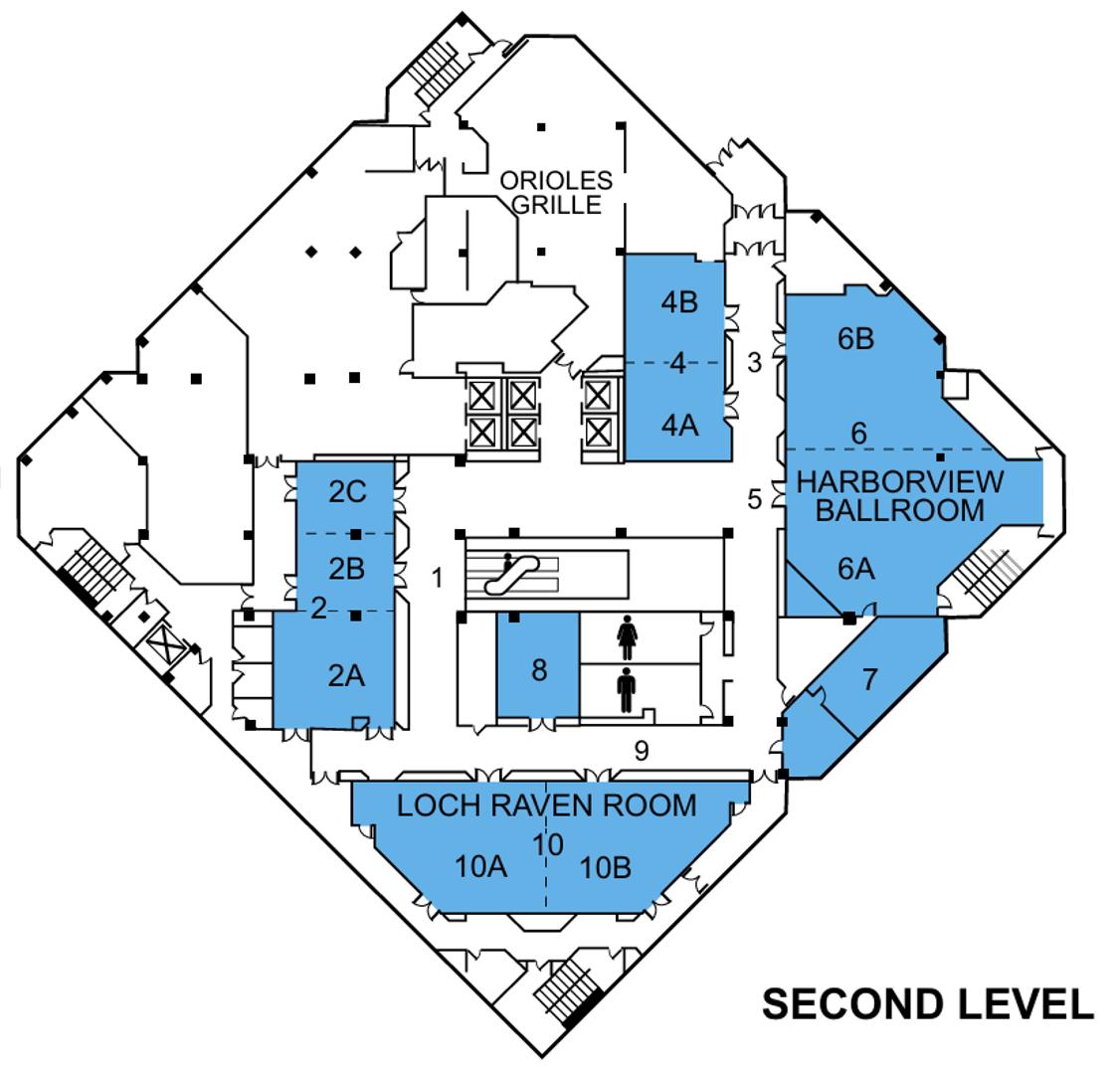
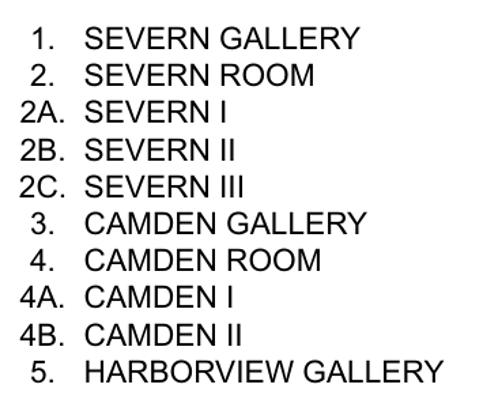


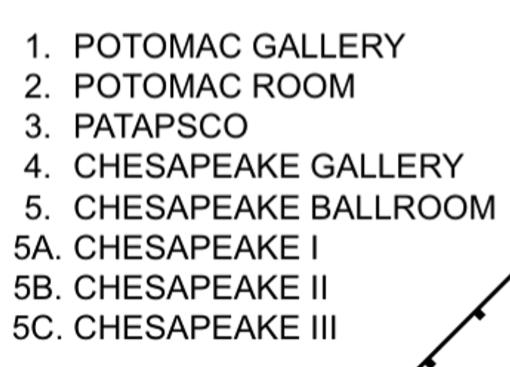
Thank you to our 2025 Symposium Sponsors!

LEADER
ALLY



PARTNER






FRIEND

SUPPORTER








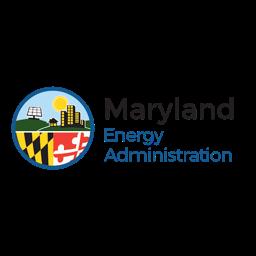
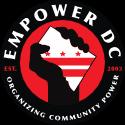



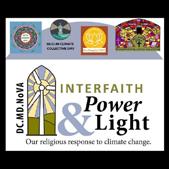


The Center for Engagement, Environmental Justice and Health is once again convening community leaders, experts and activists dedicated to building and promoting healthier, more just communities for all. The 11th Annual Environmental Justice and Health Disparities Symposium is an important rallying event for sharing insights, strategies and solutions that can have a transformative impact on the lives of people facing environmental challenges. We applaud CEEJH for all its great work.
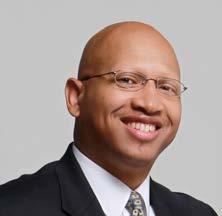
Dr. Sacoby Wilson is the Founder and Director of the Center for Engagement, Environmental Justice and Health INpowering Communities (CEEJH INC), and a Professor and Director of T.H.E. E.J. Lab, in the Department of Global Environmental and Occupational Health at the University of Maryland–College Park. For more than 25 years, he has been a nationally recognized scientist and thought leader in environmental justice, exposure science, environmental health disparities, and community-engaged research. His work spans air quality studies, GIS mapping, climate change, community resilience, and sustainability, with a focus on translating research into action alongside community-based organizations.
He leads major initiatives including the Mid-Atlantic Climate Action Hub, the EPA Region III Thriving Communities Technical Assistance Center, and the Mid-Atlantic Environmental Justice Fund. Through CEEJH INC, Dr. Wilson partners with communities across the DMV region and nationwide to address challenges such as industrial pollution, stormwater management, air quality impacts, and environmental health risks. He has built and supported coalitions such as the Mid-Atlantic Justice Coalition, the DMV Environmental Justice Coalition, and 17 for Peace and Justice, and serves on the steering committee of the National Black Environmental Justice Network.
Dr. Wilson has played key roles in shaping environmental justice science, advocacy, and policy. He served on the US EPA’s National Environmental Justice Advisory Council (NEJAC) and the Science Advisory Board (SAB). He also was a member of the 5th National Climate Assessment Team. He is a member of the National Academy of Sciences Board on Environmental Studies and Toxicology (BEST), Editor-in-Chief of Environmental Justice, and a senior fellow in the Environmental Leadership Program. His leadership and scholarship have earned numerous honors, including the 2022 Sierra Club Environmental Justice Award, the 2021 Maryland LCV Changemakers Award, and the 2018 Taking Nature Black Environmental Champion Award. A two-time EPA STAR fellow, Dr. Wilson earned his BS from Alabama A&M University and both his MS and PhD from the University of North Carolina at Chapel Hill.
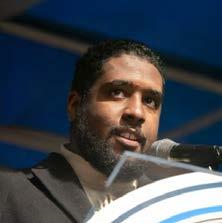
William J. Barber III is the Senior Director of Impact at the Coalition for Green Capital, and the Founder and CEO of Rural Beacon Initiative. As Senior Director, William works with CGC’s investment and impact teams to analyze investing strategy through both social and economic indicators. William also coordinates with the investment team to prioritize perspectives of communities, households, and customers by developing and integrating financial products/models responsive to the needs of underserved communities, including alternative underwriting strategies and reparative/catalytic capital strategies to drive product adoption in communities while also achieving GHG reduction goals.
Over the course of his career, William has served as an environmental advocate, a renewable energy executive, and a climate scholar–leveraging over a decade of experience, academic and legal training, and entrepreneurship towards driving community solutions to the climate crisis. He has contributed as a thought leader on numerous publications and articles describing the historic opportunity to use green finance, technological innovation, and policy to create wealth
generation for communities, especially rural communities on the frontlines of climate impact. William has sat on numerous adviosry boards notably including the DOE Boost Energy Innovation Board convened by Sandia National Laboratory and the Southeast Energy Insecurity Advisory Board convened by Duke University’s Nicholas School of the Environment.
His academic background includes a Bachelor’s degree in environmental physics from North Carolina Central University and a Juris Doctorate from UNC School of Law, where he focused on environmental and energy policy.
In 2019, he founded The Rural Beacon Initiative, a North Carolina-based social enterprise that provides consultation on operationalizing equity frameworks within sustainable solutions, and works to increase BIPOC ownership in the growing supply chains of regenerative agriculture and renewable energy. As a self-described son of the south, he is especially interested in increasing opportunities for self-determination and rural revitalization within the clean economy. William’s work on community solutions has been featured in numerous outlets, including NextGen’s 30 under 30 Young Black Changemakers and Paypal’s Rising Leaders Series.
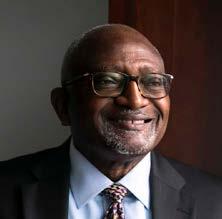
Robert D. Bullard, PhD often called the father of environmental justice, is Distinguished Professor of Urban Planning and Environmental Policy and Director of the Bullard Center for Environmental and Climate Justice at Texas Southern University. He is the former Dean of the Barbara Jordan–Mickey Leland School of Public Affairs at TSU and previously founded the Environmental Justice Resource Center at Clark Atlanta University. A U.S. Marine Corps veteran, Dr. Bullard earned his Ph.D. from Iowa State University and has authored 18 influential books on environmental racism, climate justice, sustainable development, housing, transportation, and community resilience. He is also co-founder of the HBCU Climate Change Consortium.
His landmark book Dumping in Dixie is considered a foundational text in the environmental justice field, and his other titles include Highway Robbery, The Quest for Environmental Justice, Growing Smarter, Race, Place, and Environmental Justice After Hurricane Katrina, and The Wrong Complexion for Protection. Dr. Bullard has been recognized as a pioneering voice in linking environmental issues to civil rights, and his scholarship continues to shape the national and global conversation on climate justice, disaster response, and equity in urban planning.
Over his career, Dr. Bullard has received numerous honors for his leadership, including the Sierra Club John Muir Award, the UNEP Champions of the Earth Lifetime Achievement Award, the TIME Earth Award, and honorary doctorates from multiple institutions. He has been named among Newsweek’s “Environmental Leaders of the Century,” Apolitical’s “100 Most Influential People in Climate Policy,” and was appointed to President Biden’s White House Environmental Justice Advisory Council. In 2023, he was inducted into the American Academy of Arts and Sciences and in 2024 elected to the National Academy of Medicine, affirming his enduring influence as one of the world’s foremost leaders in environmental and climate justice.
Wanjiku “Wawa” Gatheru is a Rhodes Scholar, climate storyteller, and youth activist dedicated to making the climate movement more accessible and inclusive. Raised in Connecticut as the daughter of Kenyan immigrants, she discovered environmental justice as a teenager and has since focused her work on ensuring that frontline

communities are represented in climate decision-making. A graduate of the University of Connecticut and the University of Oxford, Wawa has been recognized nationally and internationally for her leadership and communication in environmental justice.
She is the Founder and Executive Director of Black Girl Environmentalist (BGE), the first national organization focused on building pathways for Black girls, women, and genderexpansive individuals in the climate sector. Under her leadership, BGE has grown to 2,000+ members, partnered with over 80 organizations, and launched the Hazel M. Johnson Fellowship—the first national climate pipeline program designed by and for Gen Z people of color. Forbes recently recognized BGE as one of the largest Black youth-led climate organizations in the United States.
In addition to leading BGE, Wawa serves on the boards of Greenpeace USA, EarthJustice, and the National Parks Conservation Association, and is an inaugural member of the U.S. EPA’s National Environmental Youth Advisory Council. She reaches more than 100,000 followers through climate storytelling and has been named a Climate Creator to Watch by Pique Action and the Harvard T.H. Chan School of Public Health. A sought-after speaker, she has delivered keynotes for the United Nations, Harvard University, and the AASHE Global Conference, inspiring a new generation of “unlikely” environmentalists through inclusive storytelling and climate optimism.
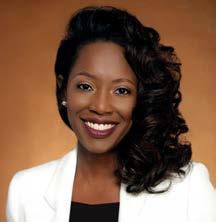
Dr. Jalonne L. White-Newsome, affectionately known as “Dr. J,” is the first Federal Chief Environmental Justice Officer, appointed in June 2022 to advise the Chair of the White House Council on Environmental Quality (CEQ) and lead the nation’s first Office of Environmental Justice. A native of Detroit, she brings more than three decades of experience advancing equity across the private, public, nonprofit, philanthropic, and academic sectors. Her career has spanned chemical engineering, grassroots advocacy, government service, and philanthropy, all with a focus on ensuring that every community—regardless of race, income, or geography—has the right to a healthy, safe environment.
Before joining the Biden-Harris Administration, Dr. White-Newsome founded Empowering a Green Environment and Economy, LLC, a consulting firm dedicated to community-centered solutions that improve public health and promote racial equity. At The Kresge Foundation, she created the Climate Resilience and Equitable Water Systems Initiative, the first national grantmaking program at the intersection of climate change and water inequity. Earlier in her career, she served as the inaugural Director of Federal Policy at WE ACT for Environmental Justice and as a Kendall Fellow in Climate Change and Public Health with the Union of Concerned Scientists.
Nationally recognized as a scholar, advocate, and leader, Dr. White-Newsome’s work highlights the health impacts of air pollution, flooding, and extreme heat on low-income and communities of color. She is also a respected voice in environmental justice policy and education, frequently speaking across the country and mentoring the next generation of leaders. She lives between Washington, DC, and Michigan with her husband and daughters, Arielle and Jeannelyn.
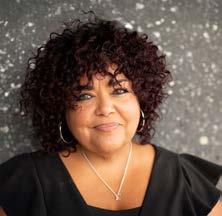
Elizabeth Yeampierre (she/ella) is the Executive Director of UPROSE, Brooklyn’s oldest Puerto Rican community-based organization, and a nationally and internationally recognized leader in environmental and climate justice. An attorney of Puerto Rican, African, and Indigenous ancestry, she also serves as Co-Chair of the Climate Justice Alliance and co-founder of #OurPowerPRnyc. For decades, she has advanced an intergenerational, multicultural, and community-led vision for just and sustainable development, climate adaptation, and resiliency in Sunset Park and beyond.
Her leadership has been spotlighted by Vogue, which named her a “Climate Warrior,” and by the New York Times, which recognized her as a visionary paving the path to climate justice. She has spoken at major forums including Sage Paris, GRI Amsterdam, the White House Forum on Environmental Justice, Oxford University, Yale, Harvard, Columbia, and the opening climate rally for Pope Francis at the National Mall. Elizabeth’s work has been featured widely in international media outlets such as Vanity Fair, The Guardian, Grist, and Democracy Now.
Elizabeth played a pivotal role in the 2014 People’s Climate March, mobilizing over 400,000 people in New York City and ensuring that frontline leadership reflected young people of color. She also successfully advanced the adoption of the Jemez principles for democratic organizing, now a cornerstone of the climate justice movement. Her many honors include the Frederick Douglass Abolitionist Award FD200 and recognition by Apolitical as one of the “Climate 100: The World’s Most Influential People in Climate Policy.”

LaTricea D. Adams, MAT, EdS is a proud native of Memphis, Tennessee and is the Founder CEO & President of Young Gifted and Green (formerly Black Millennials 4 Flint) a national grassroots, environmental justice and civil rights organization with the purpose of bringing like minded organizations together to collectively take action and advocate against the crisis of lead exposure specifically in African American & Latinx communities throughout the nation. LaTricea is the youngest African American Woman appointed to the inaugural White House Environmental Justice Advisory Council. In addition to her Environmental Justice work, she is a former middle school and high school Spanish teacher and current district level educational administrator. Ms. Adams is a past President for the Memphis Urban League Young Professionals and Thursday Network— Greater Washington Urban League where under her leadership, the chapter committed nearly 18,000 service hours. She is also a former member of the Board of Directors for the Memphis Urban League and a National Urban League Young Professionals (NULYP) Honors Award Recipient. LaTricea is the recipient of the Children’s Environmental Health Network Child Health Advocate Award. She served as a featured speaker at the highly acclaimed BroccoliCon at the Google Headquarters in Washington, DC alongside actress Amanda Seales and actor Laz Alonso. She is also the recipient of the “Unbossed and Unapologetic Visionary” Award presented at the Inaugural Black Millennial Political Convention. LaTricea also founded the first Lead Prevention Commission in the State of Tennessee’s history and was featured on BET’s docuseries “Finding Justice” focusing on her work in Baltimore specifically surrounding lead paint issues in housing.
LaTricea’s notable accomplishments reflect her passion to serve as an abolitionist dismantling white supremacy and oppressive caste systems.
Mustafa Santiago Ali (he/him) is the Executive Vice President of Conservation & Justice for the National Wildlife Federation (NWF), former Interim Chief of Programs at the Union of Concerned Scientists (UCS), Instructor at American University and is the Founder and Chief Executive Officer of Revitalization Strategies. He also serves as a commissioner for The American Academy of Arts and Sciences (AAAS).
Before joining NWF, Mustafa was the Senior Vice President for the Hip Hop Caucus (HHC), a national nonprofit and nonpartisan organization that connects the Hip Hop community to the civic process. Prior to joining the HHC, Mustafa worked 22 years at the Environmental Protection Agency (EPA) and 2 years on Capitol Hill working for Congressman John Conyers, chairman of the Judiciary Committee.
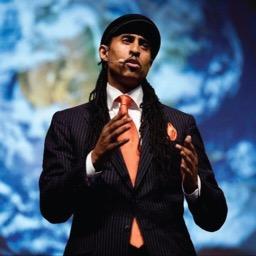
Mustafa began working on Social Justice issues at 16 and joined the EPA as a student, becoming a founding member of the EPA’s Office of Environmental Justice (OEJ). He most recently served as Senior Advisor for Environmental Justice and Community Revitalization and Assistant Associate Administrator. He led the Interagency Working Group on Environmental Justice (IWG) which brought together 17 Federal Agencies & Departments and various White House offices to strategically leverage resources to uplift vulnerable communities across the country. He has also worked with over 1,000 domestic and international communities to secure environmental, health and economic justice.
In 2019 Mustafa co-designed and co-moderated the first Presidential forum on Environmental Justice with Amy Goodman host of Democracy Now. He has interviewed some of America’s most influential leaders in Politics, Hip Hop, Civil Rights, Climate and Social Justice.
Leslie G. Fields, Esq. is WE ACT for Environmental Justice’s Chief Federal Officer. Based in Washington, D.C., she has worked for thirty years at the intersection of federal, state, local, and international environmental justice and environmental and civil rights law and policy.
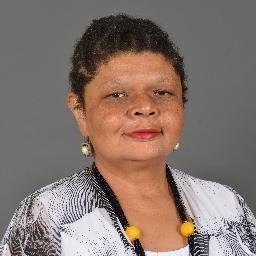
Fields most recently led Regional Energy Democracy Initiative (REDI) at the Department of Energy’s Office of Energy Justice and Equity. Prior to that project, Leslie spent 16 years with the Sierra Club, departing as the National Director, Policy Advocacy and Legal. She spearheaded and supported national policy, advocacy, and legal strategy at one of the nation’s most progressive civic organizations, cultivating collaborative relationships with dozens of local chapters and community groups. Fields designed and implemented strategies operating at the intersection of environment and environmental justice and democracy, addressing urgent challenges related to climate, voting rights/civic participation and cultural protection. She serves on the boards of the Children’s Environmental Health Network, Center for Progressive Reform and Empower DC. She also serves on the board of Adeso African Solutions and has been an adjunct law professor at Howard University School of Law. Fields was appointed by President Obama to serve on the Board of Directors of the Mickey Leland Urban Air Toxics Research Center. Some of her awards include: Washingtonian Magazine: DC’s 500 Most Influential People, 2022/2023; LawDragon The Green 500 Leaders in Environmental Law, 2023; National Bar Association, Gertrude E. Rush Distinguished Service Award, 2021; American Bar Association, Section of Environment, Energy, and Resources-Dedication to Diversity and Justice Award, 2018; Sierra Club, Mike McCloskey Award (for distinguished record of achievement),
2018. Leslie Fields is a graduate of Cornell University, the Georgetown University Law Center, and licensed in the Commonwealth of Massachusetts, the District of Columbia, and the US Supreme Court.
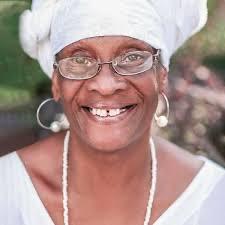
Dr. Mildred McClain, affectionately known as Mama Bahati, is a 50-year veteran of the People’s Movement for Justice and SelfDetermination worldwide. She currently serves as the Executive Director of the Harambee House / Citizens for Environmental Justice, an organization she founded in 1990. For more than five decades, she has worked in education, community development, public health, environmental justice, and global liberation struggles. Since 1988, she has championed youth leadership development through the Black Youth Leadership Development Institute, where more than 3,000 young people have been trained to serve their communities.
Recognized as a pioneer in the environmental justice movement, Dr. McClain has engaged with communities across the globe, helping them build the capacity to advocate for themselves and to participate meaningfully in decisions that shape their lives. For 30 years she has fought for justice in marginalized and disenfranchised communities throughout the United States, particularly addressing the plight of people of color living near nuclear weapons production sites and confronting the impact of radiation. Her work has earned her national recognition, including the Sierra Club’s Robert Bullard Environmental Justice Award and the American Public Health Association’s Damu Smith Environmental Health Achievement Award, both received in 2017.
Dr. McClain’s lifelong commitment is rooted in faith and Pan-Africanism. A native of Savannah, Georgia, she has been a devout believer since childhood and has studied meditation, healing arts, Tai Chi, yoga, and African spiritual practices since 1969. She holds degrees from the University of Massachusetts–Boston, Harvard University, and Antioch, including a Doctorate in Education from Harvard’s Graduate School of Education. Beyond her professional work, Mama Bahati treasures her roles as mother, grandmother, great-grandmother, and godmother, and continues to serve as a source of inspiration for generations working toward justice and self-determination.
Meleny Thomas, PhD is currently serving as the executive director of the South Baltimore Community Land Trust (SBCLT), a nonprofit dedicated to fostering development while preventing displacement and promoting the establishment of zero waste infrastructure. With more than 15 years of experience in supporting youth and families and spearheading community-based initiatives, Meleny is deeply committed to fostering fair and inclusive development practices.
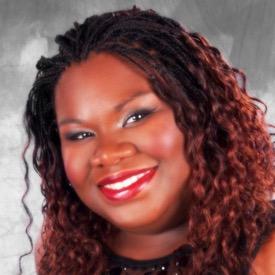
Meleny holds a Bachelor’s degree in Psychology, a Master’s degree in Nonprofit Management and Leadership, and a Ph.D. in Public Policy and Administration, specializing in Nonprofit Management and Leadership. In her role, Dr. Meleny is instrumental in the creation and expansion of permanently affordable housing options in South Baltimore. Her responsibilities include overseeing the allocation millions in funding to create permanently affordable housing opportunities. She is particularly focused on advocating for marginalized communities, including her own.
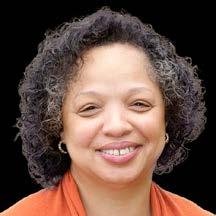
Vernice Miller-Travis, Executive Vice President at the Metropolitan Group, is one of the nation’s pioneering thought leaders on environmental justice, widely respected for her decades of work at the intersection of civil rights, environmental policy, and public health. A contributing author to the landmark report Toxic Wastes and Race in the United States, she helped spark a national movement that links race, environment, economics, and justice. Over her career she has served in roles ranging from Senior Advisor for Environmental Justice and Equitable Development at Skeo Solutions, to the first Program Officer for Environmental Justice at the Ford Foundation, to founding director of the Natural Resources Defense Council’s Environmental Justice Initiative. She also co-founded WE ACT for Environmental Justice. Her vision and advocacy were recently honored with the Sierra Club’s Robert Bullard Environmental Justice Award.
With deep expertise in community engagement, organizational capacity building, environmental conflict mediation, and sustainable redevelopment, Vernice has advised government agencies, nonprofits, and foundations nationwide. She has been appointed to numerous boards and advisory bodies, including the U.S. EPA National Environmental Justice Advisory Council, the Environmental Finance Advisory Board, the Chesapeake Bay Trust, and the Smithsonian Anacostia Community Museum. Through these roles, she has consistently worked to ensure that impacted communities are at the center of policy and decision-making processes.
A proud graduate of Barnard College and Columbia University’s School of General Studies, Vernice also completed a Revson Fellowship at Columbia’s Graduate School of Architecture and Urban Planning. She grew up between the Bahamas and New York’s historic Harlem community, and continues to draw strength from family, culture, and place. Beyond her professional work, she finds joy in singing, painting, cooking for friends and family, and engaging in spirited political debate. Her lifelong commitment to justice continues to inspire new generations of advocates working toward equity, sustainability, and community empowerment.
A Special Thank You to Our 2025 Symposium Planning & Organizing Team
SOUTH BALTIMORE COMMUNITY LAND TRUST
SHALEENA

THANK YOU
I would like to thank the CEEJH INC staff, speakers, volunteers, sponsors, vendors, and attendees for making the 11th Annual CEEJH Environmental Justice and Health Disparities Symposium a stupendous success! We look forward to the continued work of advancing environmental justice with everyone in attendance, in the coming weeks and months. It’s important that we take the momentum from this event to implement the people’s agenda, to resist anti-environmental justice efforts, and to ensure that frontline and fence-line communities remain resilient as we fight for a more just and equitable society. We look forward to seeing everyone at next year’s symposium which will be held in September 2026.
In Solidarity, Dr. Sacoby Wilson

